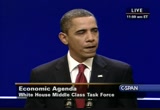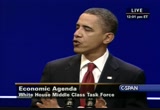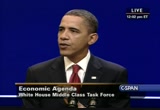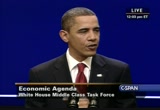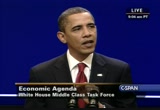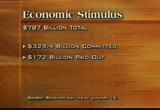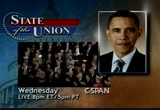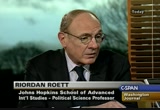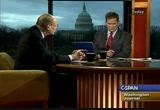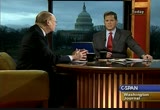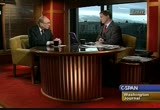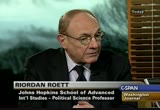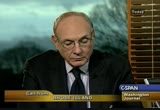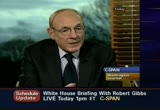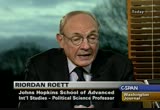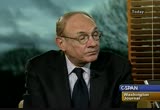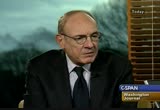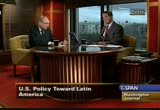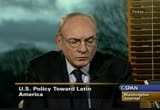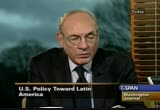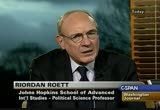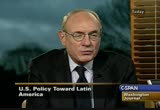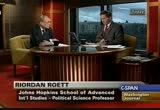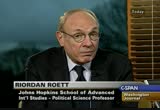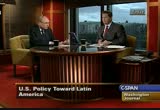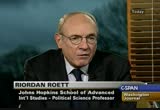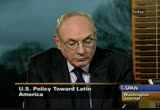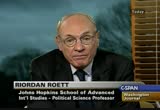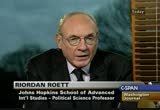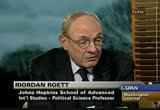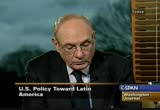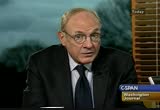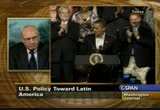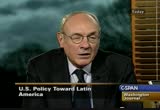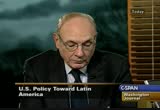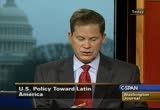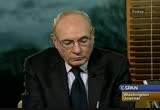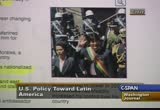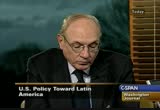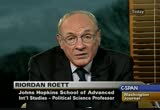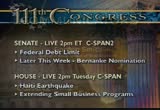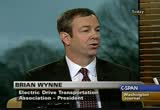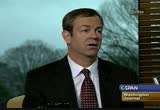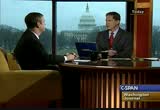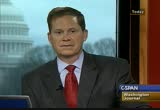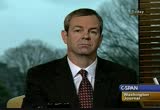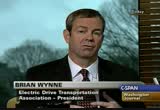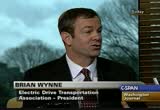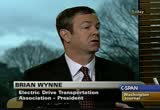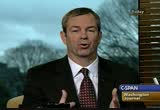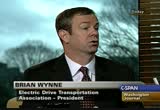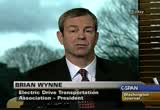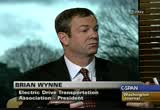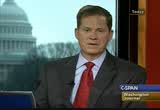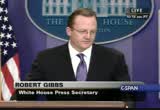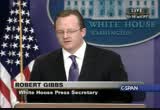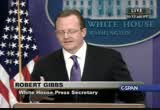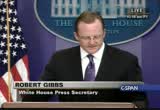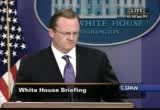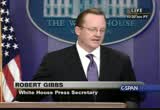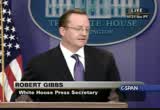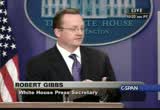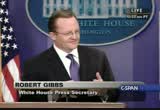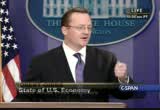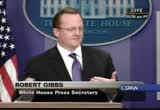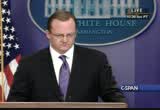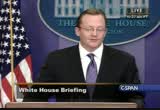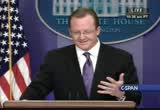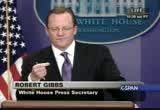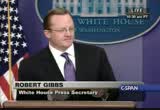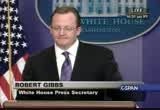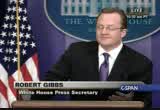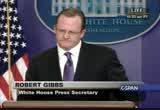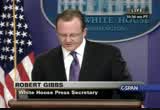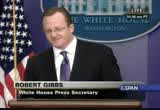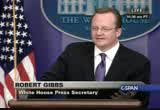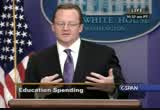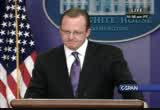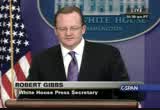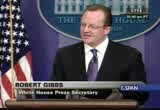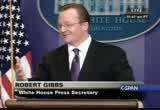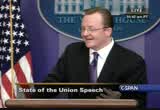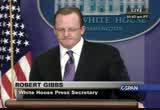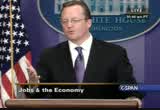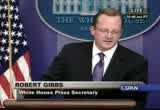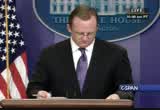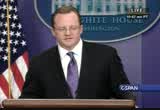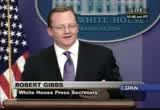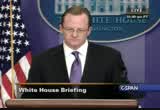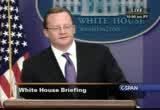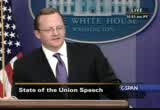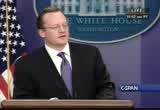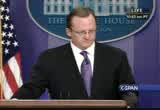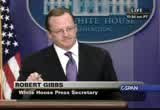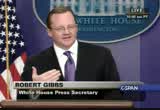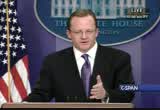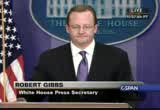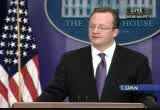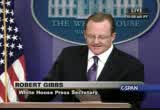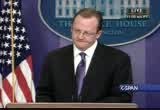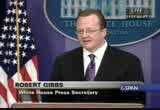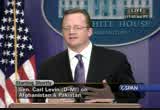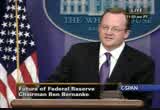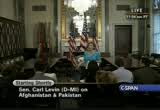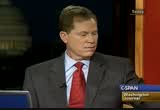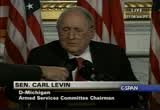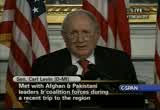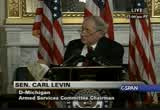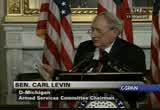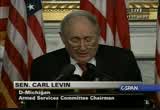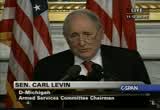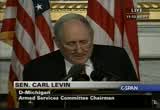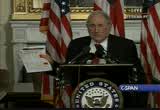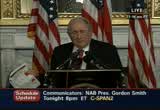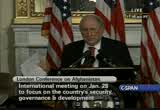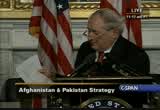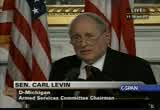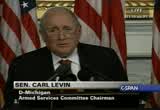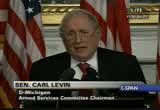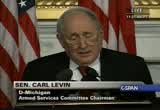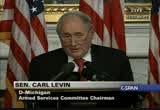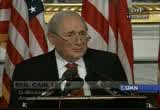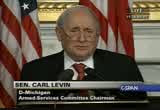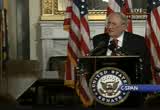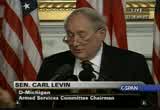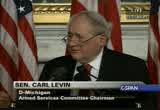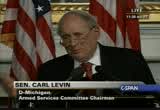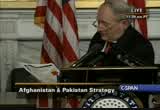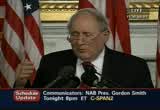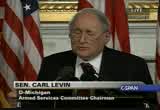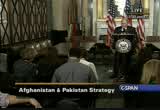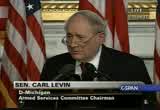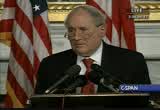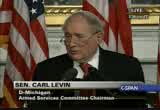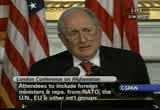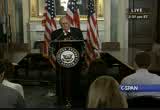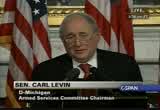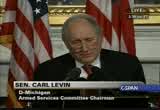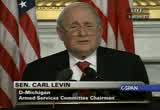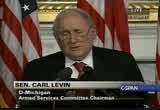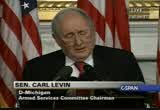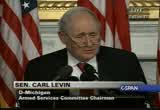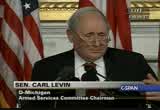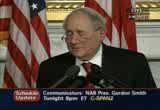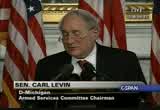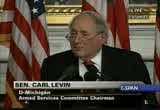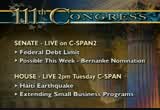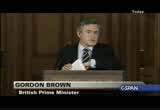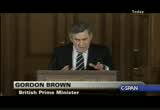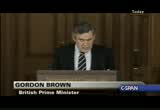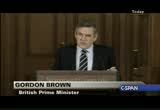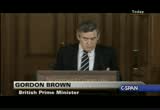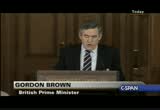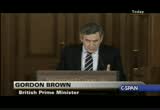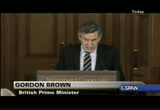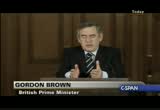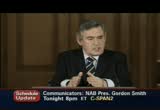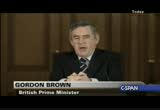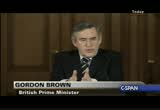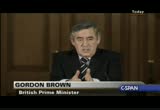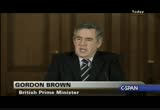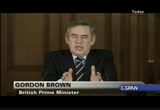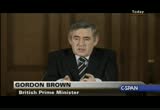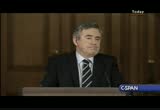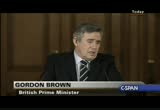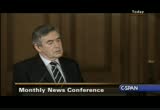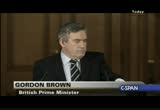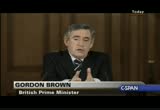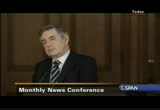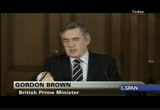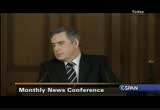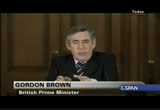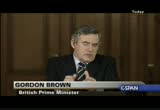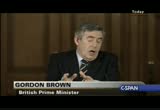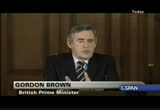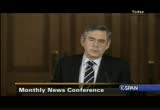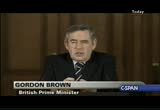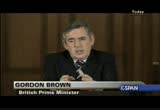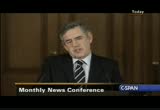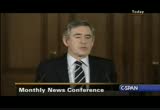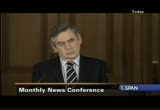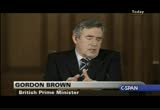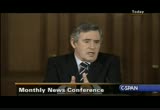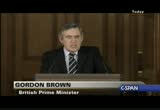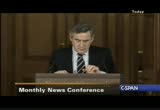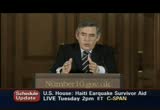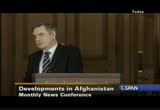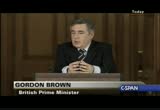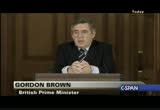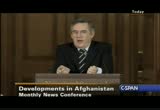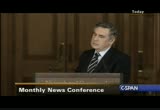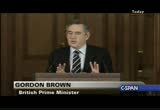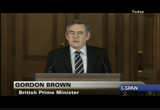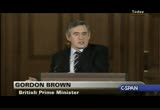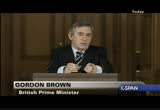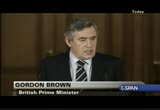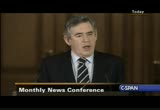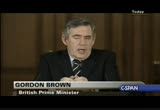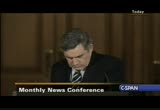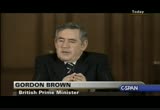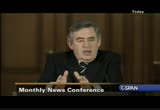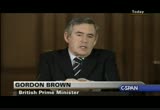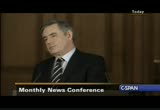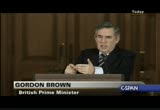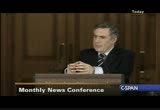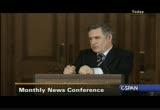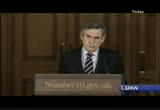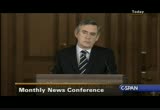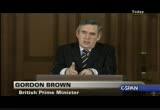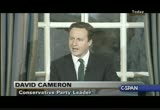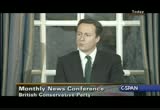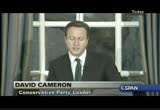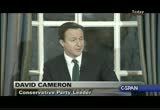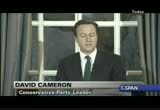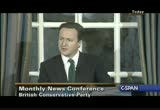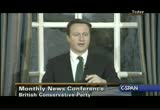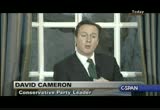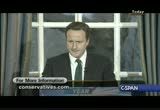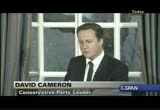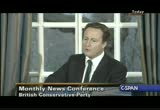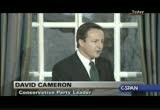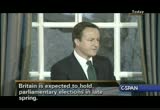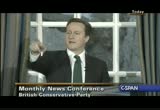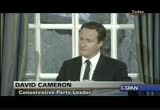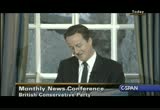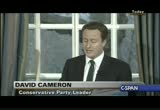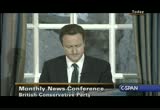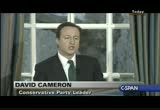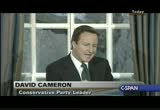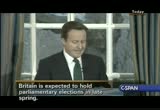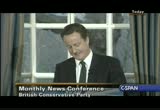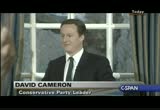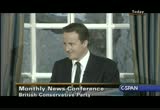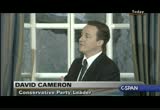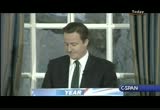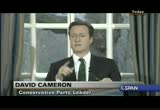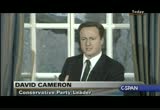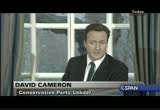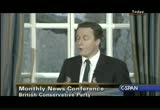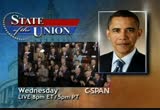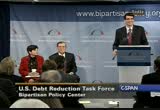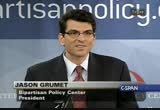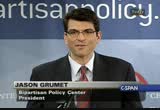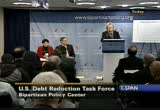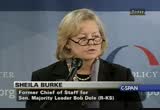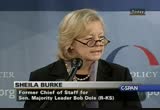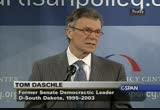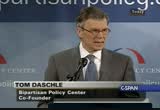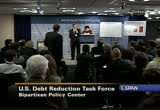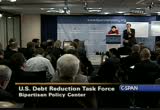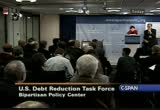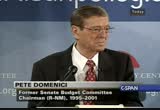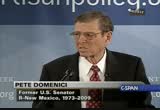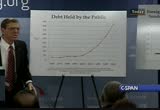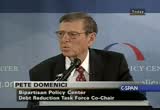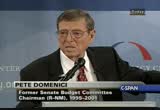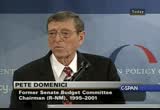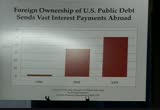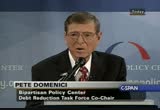tv U.S. House of Representatives CSPAN January 25, 2010 12:00pm-5:00pm EST
12:00 pm
middleclass. it made 20 a century the american century. unfortunately, the american classic been under assault for a long time. to many americans have known their own painful recession is long before any economist declared there was a recession. we have just come through what was one of the most difficult decades the middle-class has ever faced. it was a decade in which median income fell and our economy lost about as many jobs as it gained. .
12:01 pm
12:02 pm
far. but more than 7 million have been lost as a consequence of this recession. an epidemic that demand our relentless and sustained response. last month, the house passed a new house -- a new jobs bill. the senate as we speak is hard at work developing its own job creation package. creating good, sustainable jobs is the single most important thing we can do to rebuild the middle class and i will not rest until we do just that. but we also need to reverse the overall erosion in middle-class security, so that when this economy does come back working americans are free to pursue their dreams again. there are a variety of immediate steps we can do to take -- can take to do just that. joe already spoken about some of these proposals in detail, proposals that make it a bit
12:03 pm
easier for families to get by, for students to get ahead, and for workers to retire. to make balancing work and family more realistic, we will make it easier to jaret -- care for children and aging loved ones. to make college more affordable, we will make it easier for students to be back their loans and for giving it earlier if they are choosing to do public service. joe and i will keep on fighting for what matters to middle class families. and education that gives our chance -- our kids a chance in life, clean energy that generates jobs for the future, meaning financial reforms that protect consumers, and health reform that prohibits the worst practices of the insurance industry and restores the stability and peace of mind for middle-class families. none of these steps will solve all the problems facing the allies. -- the middle class. joanna i understand this -- joe
12:04 pm
and i both understand this. but it will reestablish some of the security swept away in recent years. we measure progress not by how the markets are doing, but how the american people are doing. we will keep fighting to rebuild our economy so the hard work is once again rewarded, wages and incomes are once again rising, and the middle class is once again growing. and above all, we're going to keep fighting to renew the american dream and keep it alive not just for all -- not just for our time, but for all time. our team, and that includes folks over here -- thank you for the work you have done. i'm excited about the proposals that you have come up with and we expect that we will get some of these critical initiatives passed soon so that folks can get help right away. thank you very much.
12:05 pm
[applause] [captioning performed by national captioning institute] [captions copyright national cable satellite corp. 2010] >> it has been about a year since the economic stimulus was signed into law, of the $787 billion approved so far, about $330 billion has been approved for projects with about 172 billion paid out. -- $172 billion paid out. carl levin has recently returned from visiting afghanistan and pakistan. he will talk about what he saw and we will have live coverage of his remarks at 2:00 p.m. eastern here on c-span. also at 2:00 p.m., the senate gavels in to continue the debate on raising the national debt limit. the vote tomorrow on a combat -- the creation of a commission to recommend ways to cut the deficit. centers are expected to take up
12:06 pm
the nomination of ben bernanke for another term. his current term ends on sunday. they will consider a bill to provide emergency aid to the u.s. survivors in the earthquake in haiti. >> wednesday, president obama delivers his first state of the union address to congress, laying out his vision -- his vision to the future of the country and his ideas on unemployment, health care, and the wars in iraq and afghanistan. our coverage starts at 8:00 p.m. eastern on c-span. you can also listen to the president's address live on what your iphone with d.c.'s own greed -- with the c-span radio app. science professor from the johns hopkins school for advanced political policy.
12:07 pm
what is our policy currently in latin america and how different is it from the bush administration? >> we really don't have a policy to latin america. that is not a fault of the obama administration. the euna states needs universal bilateral policies in certain regions. there are many long past policies for the night states -- the united states need to direct -- differentiate among different countries in the hemisphere. we have different priorities now. we are slow in washington on the hill and in the white house to come to that understanding. host: what is the political landscape in latin america? how has the landscape changed politically down there? guest: there is a much more
12:08 pm
diverse ideological group of countries such as venezuela and ecuador and bolivia which are not very friendly to the united states or to the market economy. on the other hand, we have a prpragmatic president likelula in central america. we have the problem of cuba and we have a terrible problem with haiti. host: on the issue of haiti, there is an article about a question of commitment and can the united states lead a long effort to rebuild haiti. what will the u.s. effort their say about our overall commitment to latin america in general? guest: the united states is best served by multilateral action. for example, the united nations peacekeeping force in haiti has been let for a number of years
12:09 pm
successfully by brazil. host: they were there when the earthquake happened? guest: they began the first efforts to help the haitian people. it would be good to work with the brazilian people brazil is an increasingly wealthy country and they have experience in haiti so do not take the american legal the target bring in other countries and work out a common approach, a common policy. host: we are talking about latin american policy and your calls and comments are welcome we will get to your calls momentarily. on the issue of the war on drugs in mexico, an issue that plays out regularly on the screens of american television, one article talks about the spanish
12:10 pm
quagmire. here's a brief comment in this piece about what is failing but the mexican drug order the mceuen drug war is a costly un winnable and predicated on the mets. there has been distorted statistics to bed history how -- there have been distorted statistics. will the new efforts be any better in helping mexico in their drug wars? guest: does not seem so. the basic question is less the transportation of drugs than the consumption of drugs, the purchasing of drugs in the united states and western europe. until we deal with the current -- the issue of consumption, we will not deal with supply. many believe that mexico is fighting the u.s. problem.
12:11 pm
drugs are still reaching the u.s. market. guest: if we don't participate, it creates a griddle next national security issue? guest: we need to participate but there are many things united states could do like to deal with the flow of arms out of most mexicans are being killed by weapons exporter from the united states. where is all the money going? why can we open a bank accounts and find out where the money from this terrible curse is actually going? host: is it your view that drug consumption has bite in the last few years? guest: very much so. we have a much wider variety of stuff that people can buy, unfortunately. host: first up is syracuse on and democrats . caller: 01 to ask about haiti
12:12 pm
and the bill clinton policy and that record -- i wanted to ask about haiti and the bill clinton policy in that regard. there's an issue about the phone company privatization and bill clinton wanted the company to become privatized. there is a move toward pushing jean-paul aristide out. he got away with $9 billion. can you speak to that? guest: i really can't comment on how much president aristide has in his bank account. bill clinton is the special
12:13 pm
envoy to to the united nations to haiti. the clintons know haiti and they were there when they were younger. he has been there during the recent crisis. we need to look forward rather than going backward and looking at the decisions taken back in the 1990's. we need a comprehensive rebuilding program that must be multilateral in which president clinton will play a part but not be the leader. host: baltimore is next, independent line. caller: the united states jumped an end -- should jump in and help other countries. the united nations should do it and other countries should come in. when something happens, the country that wants to take over instead of the united states should say that we don't need our help guest: i think the approach should be moultrie collateral and we should do more perplexing for a crisis. there will be another earthquake or some money someplace in the world. the united nations should have a
12:14 pm
command structure that is ready to go into place and work with a number of countries and they can provide different kinds of aid and assistance. that should be ready to go immediately and not debate who will be involved. host: next call is from portsmouth, rhode island. caller: our relationship with cuba seems to be so heavy handed. they are communists but there are avoidance of corporatism. we do business with china, the largest communist country in the world. that makes me wonder -- we do treat everyone different. a lot of it is for our own interest. it seems rather odd to me. hostguest: the guest: the embargo that the u.s. has had on cuba is
12:15 pm
counterproductive from the point of view of many of us. it really is the lifeline for the castro brothers. every time there's a problem in cuba, they can say it is not because we do not have democracy, but because the terrible united states will lift this embargo. you would have an influx of goods, people, and investment, and the communists cannot stand that. host: the obama administration has made some efforts to change policy. what have they done specifically? guest: small but important steps. the president has now made it possible for families to be reunited. you can send money back to your island -- your families. it is a poor island and with the embargo in place it will never be a wealthy island. host: next call from pennsylvania on the democrats line. caller: with the policy in
12:16 pm
haiti, the topsoil is destroyed and they cannot grow anything. we must have known 30, 40 years ago that place was in trouble. i do not know why you say that stuff about the mexican drug war. yes, our guns are going down there and we should stop the guns. we should not be manufacturing the way we are. that is about the only thing still made in america is my understanding. but the war on drugs, i mean, when obama had all of the people on the internet and he did his polls, the number one thing -- maybe they're all just a bunch of young, stupid kids, but the number one issue for them was to legalize marijuana. and it is now legal, you know, in california. get in 1 ounce a month if you have cancer or aids. the drugs are not all horrible. most of the horrible drugs are manufactured by are pharmaceutical companies and people abuse them.
12:17 pm
guest: the drug issue is very complicated. it is supply and demand for it is one that neither the europeans or the americans or latin americans have been able to come to grips with are the drugs are having a big effect in latin america. this was not true 20 years ago. we will not resolve this overnight. we need to focus on the issue now that the mexican society is bleeding very badly. united states needs to be concerned about that. secretary of state clinton said this last year. host: a dealer is asking if cuba got an earthquake like haiti, would we be there to rebuild a communist regime? guest: that is an issue of helping out a country that has terrible problems and we certainly should from a humanitarian point of view. it should be a multilateral so
12:18 pm
that the united states cannot be blatant. med. host: the venezuelan president has ordered a popular television station off the air. rctv would not televise hugo chavez' speech. there's an editorial piece that says revolution in rowing. -- in her (what is your assessment of venezuela and its government? guest: president java's is an unpredictable and wallets of individual in latin american politics. when he is on medication, he is not in bad shape. when he is not on his medication, he makes statements. he does not like most of the other presidents and latin america.
12:19 pm
the ball of our revolution -- what he has done successfully is to almost destroyed venezuelan democracy, the free press, and a market economy. the interesting question is how much longer he will be tolerated. host: -- the 80 situation only deepens the whole of hugo chavez bread but -- the haiti situation only deepens the whole hugo chavez hole. the united states is an empire and an evil force in the region, according to them. guest: president chavez has problems with other governments.
12:20 pm
4lñhis army is not prepared to fight a war. he has been active in attempting to undermine u.s. interests throughout the region. he has not been successful there either. there are three or four governments that work with president chavez persia. you have a leader like you get a job as -- like hugo chavez who do not know how to govern host: what about lifting thei embargo to venezuela? guest: we would have to be very careful to provide support for the caribbean islands that take the torch and that once went to cuba from the united states. we need to have a plan in place to get economic support for those island countries.
12:21 pm
the transition in cuba which i hope would be democratic should not fall into the hands of either the very left or very rights in cuba. the organization of american states needs to be involved. host: what about other political parties in cuba that might fill the void? guest: there's a very active human rights movement in cuba. they have suffered abuse and while there are no parties, there are civilian groups that would step forward, intellectuals, not on like hungary and the 1950's. -- in the 1950's. host: the town of sugar growth in virginia is next. caller: i'm calling about the drug war.
12:22 pm
from what i understand, the united states is using about 80% of the drug enforcement agency's funding every year and putting it toward marijuana control. given that about 20% of everybody in prison is there because of a non-violent drug offense, do you think that the failure of the drug war is a direct result of these practices? guest: i did not know that 80% of our money was going to fight marijuana. if that is true, that is the wrong policy. that is complicated for any policy maker. it means we need a discussion of our present policy. host: 4 lauderdale is next on
12:23 pm
our democrat line. callerhost: turn down your telen or radio and we will get to you next% antonio, good morning on our republican line. caller: i think both parties have done a terrible job in the last few years. i do not understand why they will not touch the immigration policy. bebel -- they will main post offices but they will not touch immigration. it is an ongoing problem that is getting worse. we have eight now and they want to bring those people here yet we are doing without jobs now. -- we have haiti now and they want to bring those people here yet we are doing without jobs. this is terrible for the
12:24 pm
haitians and i feel bad for them but nobody came to help the united states for louisiana and it is not cleaned up yet. other countries have to stop depending on us for us to rebuild and help themselves. by the way, i saw a beautiful fruits and vegetables in haiti being sold on the street. they have a beautiful countryside but nobody wanted to live out their print. re. guest: they have made many mistakes in haiti when we had democrats or republicans in the white house and congress. the united states is not good at ruling other countries. we tried to rule haiti for a while and it did not work. they have a corrupt made of a leak that does not know how to govern. haiti has been bereft of leadership for a long time. the current president has
12:25 pm
probably been the most competent president of haiti in 50 years. he was beginning to rebuild the national development program and then the earthquake hit. yes to begin all over again. given that that initiative was beginning to look positive for the first time in many decades, i think the u.s. and latin american community should support the president in getting back on course. host: what other latin american country has a strong presence in the haiti relief efforts? guest: i think brazil is probably the most important. 17 of them died in the earthquake. they have any strong commitment to this multilateral action and made it -- and they have been very well received. the asians love brazilian soccer. the brazilian soldiers -- the haitians love brazilian soccer.
12:26 pm
host: you have written extensively on brazil and had articles about how reform has powered the brazilian rise. how have things changed in brazil and what has been the role of government reform? guest: these are two successive governments of two different political parties in brazil. they want to maintain very low inflation. they have begun to reduce poverty for the first time in history with a family support program which is very impressive. it goes directly to the families, not the politicians. they have begun to diversify their exports which creates jobs increased money which goes back to the brazilian people host: they are getting the olympics and a couple of years. guest: they are getting the
12:27 pm
games in 2012 and 2016. injustice is a problem but poverty is going down and people are moving into the middle class in brazil for the first time. host: they have also formed an alliance with russia, india, and china, the so-called bric countries. guest: goldman sachs began to look around the world and see you the new drivers of the economy would be in 30 years and taken up with the idea that brazil, india, russia would be the most important players in a world economy in 200030 or so. that is proving to be true. brazil and it to the crisis lasted came out first. india and china are growing. these are very dynamic economies with tremendous resources. they are now becoming a potential replacement for much of the employees the u.s. and europe has had for a number of decades.
12:28 pm
host: what is the population of brazil? guest: about 190 million people. host: our next caller, go ahead. lake city, fla., on the independent line. caller: i want to know the opinion of the administration's position on honduras. guest: i think the united states has had a somewhat confused position. the white house and the capital had difficulties because of congressional approval problems, the white house did not have an assistant secretary for latin america until late november, well after the crisis began. second, the hon door and issue became very deeply involved in local and regional level american politics. venezuela, brazil, they really need to sort that out now that
12:29 pm
we have a new government in honduras. the new president has held out an effort to make peace with the opposition. i am hoping within the structure of the organization of american states, the united states will cooperate to look forward and not look backward to a bad part of our history last year. host: when does the president elect to take office? guest: in a few weeks. host: there is a critical article on the u.s. and their treatment of honduras. guest: again this is a very controversial issue. the u.s. moved to quickly when
12:30 pm
president of the lie was overthrown, but from the point of view of the honduran people, the president was going after the throat. and this is a conservative society. it was very important from the point of view from the pentagon, correctly so, to make sure that the u.s. maintained as strong and open links as we could with the honduran military, in part because of the war on drugs, because of immigration, and other security questions. these are always tough calls for the honduran secretary of state, but after the initial bundling, we did as well as we could under the circumstances. host: who is the u.s.' central ally in central america? guest: probably costa rica. it is a very democratic, very middle-class country. host: fort lauderdale, go ahead john.
12:31 pm
caller: i wanted to ask two questions, if i could. the first one, i wanted to ask you if it seems like there is a disconnect in that america between the economic stability and the political stability of the countries and down in south america. e countries have not been very politically stable but their economies are able to be supported and grow. you mentioned the bilateral relations is a better way to go for policy in latin america. what other countries other than brazil could we adopt that? guest: there are a number of countries we work very closely with. chile just had a presidential election and that was a major shift from the coalition of socialists to an independent on the democratic right. we will be able to work well with the president. there is a new president in
12:32 pm
uruguay. he is a pragmatic president. we work closely with the president of columbia and the government in peru. and burt brazil -- and brazil is one of our major allies. those countries that are economically stable, in particular chile, colombia, peru, we can work with them very well. there's probably no problem because economic stability has provided strong support of open democratic societies. countries like venezuela and ecuador have tremendous political problems and will always have them ver. host: arlington, va., on a republican line. caller: it is interesting because we are talking about the governmental systems of latin america. maybe we should be talking
12:33 pm
about their economic situation. most of them are socialists. brazil is a socialist country. zelaya tried to change the constitution in order to extend his reign and the military stepped in and ousted him. there is a cause and affect their parenere. \ hugo chavez in venezuela is a wacky gag paruy. the russians were playing word games with these guys and offering to build nuclear power plants for them. in exchange for natural gas. i think there is a threat there with russia and iran and with venezuela. .
12:34 pm
i am one of these blue-eyed guys up here in america that does not know anything about the economy, you see. but i do have some good friends that at gotten some really good work done in colombia. guest: i think you can call the brazilian government socialist, but it is competent socialism. what we need in america is not incompetent socialism as you have in venezuela or in ecuador, but people know how to run something. and the brazilians know how to run something and that is called their economy. you can call the government anything you want. when they accomplished the kinds of things that brazil has, that is a good government and one that we can work with. we have worked with the colombians for decades, as we have with the chileans and
12:35 pm
others. it means picking and choosing and i think united states has done that well over the next -- the last two administrations. host: call from illinois. caller: in 1991, -- host: next call from maryland. caller: in 1991, [unintelligible] guest: i do not think anyone has a pick -- accused the president of being in najaf president. he has restored stability to columbia. the is one of the closest allies in the region of the united states. he is a natural fit -- admirable figure who i hope will not run for a third term and step down as the constitution says he should do.
12:36 pm
host: has this arisen -- because a rise of drugs in mexico? guest: yes, it is kind of like a bubble. you push down in one place and it pops up somewhere else. aunt unfortunately, people want drugs. if they cannot get it through columbia, they will get -- to colombia, they will get it through some worlds. host
12:37 pm
host: what is going on in argentina? guest: nothing ever goes well in argentina, unfortunately. it is a very rich country that has been very badly governed for many decades. and you have a very populist president, a woman who succeeded her husband as president. the two of them a sort of run argentine as though it were their form or their ranch. nothing is very clear in terms of policy. the central bank has been basically emasculated. the president of the bank is a very fine painter, but he's had no independence since she has come into power. people are beginning to blame the central bank, which is not true, for the mistakes of their administration. what we need in latin america are strong central banks, like chile and brazil. in the banks that understand how
12:38 pm
to keep the inflation low and the money situation bonds and that is not happening in argentina. host: north carolina, go ahead. caller: i think this has been very unfair from the beginning. i mean, back to the clinton administration. they were sending those people back to haiti to get murder when -- to get murdered. and even when they said they were going to let them come here, there were going to send them to guantanamo bay. when the cubans were leaving, we went and got them off of boats and got them out of here. and aristide, he was one of the only elected president that he ever had. though clinton said he had to go and when george bush got in there, he really told him he had to go. our policy and run the world is
12:39 pm
to put people in power that benefit us. this is what the american people were looking for when we voted obama in, is to change this policy and get out of this imperialists dick way of thinking. thanks host: for the input. -- this and realistic way of thinking. -- imperialistsic way of thinking. host: thanks for the input. any thoughts? guest: we need to the about long term, bipartisan support for construction. we need to be cognizant of the fact we have a large haitian american population and they will be very much concerned as to what the white house and congress decide to do in the next months. host: as far as policy towards latin america, is there a general perception of what the leaders of latin america think about president obama?
12:40 pm
guest: obama is very popular in latin america. the united states is not as popular as the president is in some countries. but i think we are holding our own in the region. i think the president's should try to find time to the region. it would be a very exciting visit. in brazil, oden cried, chile, colombia -- are quituruguay, ch, colombia, it would be a very good visit. host: washington, go ahead. caller: are you aware of the president's -- the brazilian president's speech in copenhagen where he said, the problem is the white people in the world. the second question is there is
12:41 pm
a country -- a company in brazil that is an offshore drilling company that in june, the obama administration gave a $15 billion loan to and i think is quite ironic that in february, george soros bought majority shares in that company. effectively, this administration has paid back george soros for getting elected with taxpayer funds. guest: i do not know anything about the second issue, but i can comment on the first. the brazilian president is a colorful, charismatic leader. then he has been for some to, to a half years. very annoyed that they have had to do things that the united states and europe-not have to do. and he has -- have not had to do. and he has been very open about saying that they have not had to
12:42 pm
do things that they've had to do in developing countries. host: salt lake city, democratic cruller. caller: we have -- and democratic collar. host: we have more natural gas than any of the country. wyoming has a huge amount. we have not even put pipelines for the natural gas here in utah. canada, and i believe muskeo has a huge amount of natural gas -- and i believe mexico has a huge amount of natural gas without going into the ocean. why is this all focused on venezuela? guest: very interesting question and i agree with you entirely. we should be looking at a comprehensive hemispheric energy
12:43 pm
policy that would reduce our reliance on venezuela tow -- totally and completely. that would include canada and i did not know there was damaged natural gas in the far west, but burn them in. -- bring them in. our big partner should be brazil. brazil has made major oil and gas discoveries over the last two years. it will be coming on line in the next three to five years. that should be the core of our hemisphere to energy policy. host: a headline reads, u.s. faces resistance to his line am. what is china's presence? guest: the china -- china's presence is there a commercially
12:44 pm
oriented at the time. the chinese are very sophisticated and know that they cannot do what the russians or the iranians have done. what they will do in 10 years, we do not know. the chinese market is very important for brazil, for chile, for perot in terms of exports. at and the relationship is going to grow. -- for peru in terms of exports. and i think the relationship is going to grow. host: tampa, fla., independent line. caller: are you familiar with the college of america's that was an operation run out of a military base in georgia whose intention was to destabilize latin america? that goes back a while. that is not anything new. guest: as far as i know, and i do not know evan -- do not know everything, there are no current plans to destabilize lun
12:45 pm
america. our interest is in stabilizing it and in both parties over the past 25 years, the goal has been to work with stable, predictable governments, to overcome economic problems, and to do with the issues at hand over trade and investment. host: what about david morales? was the condition of that country? guest: the imf has just come out with a very favorable view of the economy. there're different racial issues at year -- and geographical and territorial issues in bolivia, but it is doing better than it would have been three or four years ago. it is a case of foreign intelligence, pragmatic leader can turn around a -- an economy and deal with the issues he needs to address. host: debbie in albuquerque, go ahead. caller: i am listening to you
12:46 pm
and i am amused by your take on his trip because a lot of people in america do not know what went on in central america and south america. and i noticed you did not seem to mention anything about chile except they're doing so great. we talk about 9/11 here in new york. there was also a 9/11 in chile, which we did in 1973 when we put pinochet charge. we try to come across with this altruistic attitude that we are going to help everybody, but we do not. we're just down there to get the resources that we want. we do not like to talk about the mistakes that we have done, only the good things. but we have almost destroyed julie and millions of people were killed under pinochet, which we showed under the cia how to do. pinochet.
12:47 pm
he was in charge for 20 years. he got in in 73 and got out of 93. guest: my math is quite good. yours is wrong. the united states was helping the transition to democracy in chile in the 1980's. yes, we work involved in a coup in 1973, which is regrettable. >> the senate armed services committee chairman, carl levin, recently returned from his trip to afghanistan and pakistan.
12:48 pm
we will have live comments from in coming up at 2:00 p.m. eastern on c-span. this of -- the senate gavels in at 2:00 p.m. eastern as well. the vote tomorrow on the creation of a commission to recommend ways to cut the deficit. they're expected to take up the nomination of federal reserve chairman ben bernanke, nominated for another term. meanwhile, the house meets tomorrow and it will consider a bill to provide emergency aid to u.s. survivors of the earthquake in haiti. tonight on "the communicators" gordon smith, former center, will talk about efforts for broadband spectrum and what it might mean for broadcasters. that is at 8:00 p.m. eastern on c-span2. >> wednesday, president obama delivers his first state of the union address and will layout his plans to deal with issues
12:49 pm
such as health care, unemployment, and the wars in afghanistan and iraq. you can listen to the president's address live on your iphone with the c-span radio app. >> listen to c-span radio, in washington and 90.1 f.m. and on xm satellite channel 1/3 to -- 132. >> two democrats have come out in support for another term of federal chairman ben bernanke. also just announced, senator lieberman supporting the nomination. meanwhile, president obama is offering a series of proposals to help the middle class. the president and vice president say they will be part of the
12:50 pm
next administration budget. and also mentioned the the state of the yen on wednesday. we expect to take you live for the white house briefing with regard gives at 1:00 p.m. -- with robert gibbs at 1:00 p.m. alterative hybrid vehicles, a battery plus gains and your event this week is the green summit, the green car summit that is happening in washington. what is going to go on at this summit? guest: and there are a variety of executives like myself that are bringing alternative and advanced technology vehicles to the marketplace. we are promoting these vehicles to create a green jobs in this country, to reduce dependence on oil, and reduce our greenhouse gas emissions in the transportation sector. host: 0 estimate by a year, at what point will alternative power -- what is your estimate,
12:51 pm
what point will the alternative darcars been vehicle in the united states? guest: difficult to estimate. most recently of course, we have had the introduction of hybrid vehicles. they have been in the market for 12 years now. their 1.3 -- there are 1.3 million vehicles that are hybrid vehicles on host: the road what do you drive? guest: i cannot say exactly because i work for all of the manufacturers, but i do drive a hybrid. there are many of them on the road. as you mentioned, that is part of a portfolio of what you called configurations. but with a hybrid vehicles in the market. the next generation of those vehicles will be improvements of hybrids, and also plug in
12:52 pm
hybrids that will utilize more fuel for the cell itself. host: do you think the future of our transportation is this multi types of power and set of the one combustion engine or diesel or gasoline powered? do you think it will be able to compete and be prosperous as a business? guest: i do, there are many but -- vehicles in the fleet. we are 96% or 97% dependent upon one commodity to move goods in this country. it is not good for our environment, our economics or our national security. what we promote in washington is policies that will move to a variety of these kinds of -- of this portfolio as rapidly as possible into the marketplace. host: your website,
12:53 pm
electricdrive.org, a lot of folks can look and see what organization is doing, what vehicles are out there. during this segment will be showing you both videos and photos of many of the models that are out there. and of course in washington many are seeing the august on display. -- the autos on display. when we do these segments, and the electric powered cars, we often get the question about the documentary. who killed the electric car the was done a number of years ago, chevy is efforts toward that? why does not work for chevrolet back then? guest: there were a whole raft of automakers the work introducing electric cars through the mid 1980's and early 1990's. a lot was learned from those
12:54 pm
early efforts to put electric vehicles on the world. there has also been a whole series of other technologies that have converged here. all of it was to optimize vehicle energy use. part of what came out of that with the development of hybrid vehicles. we are surprised, actually, at how much electric drive really boils down to software. microprocessor speed and software in these vehicles at speeds that allows these two drug rings to work together. that is working for applications today. in the meantime -- these two drive trains to work together. in the meantime, we have worked to get these batteries well beyond what it was during the early example that was referred to in the movie, and primarily in california where there was an attempt to try to bring these vehicles to market. right now, people buy a vehicle that suits what they are quiet
12:55 pm
-- what is clear to do for them. for you and i in washington that may be in them -- one kind of vehicle. for a fleet owner, that is a different kind of vehicle and the key is to find the right technology solution that optimizes the energies, reduces the oil, displaces the oil was something that is domestically produced, which in this case is electricity. host: a number of callers waiting for you. the first one is up for -- from pensacola. call ahead for mr. wynn. caller: my first comment is, obviously, you are paid by this industry, but as we all -- as we all know, the achilles' heel of the electric car is the battery and that technology is not going to be anywhere near commercially viable for a least 10 to 15 years.
12:56 pm
the problem with it is that it is a pollutant, the batteries, are they going to be protected in crashes? i think an amount -- a more immediate step would be the conversion of the combustion energy -- the commotion and june, to natural gas. -- the combustion engine to natural gas. and i think that solar and wind power without government subsidies are not viable. guest: as it relates to batteries, the thing that we have really been striking here and observing here is prepared technologies. batteries have been good -- but have been developing for quite some time. there is a choice for pure
12:57 pm
electric vehicles going forward, and to some extent, plug in hybrid vehicles. the technology is quite robust at this time. it is used in this laptop that is here in the studio. it is used in everyone's itself alone. we're trying to get the technology -- in everyone's cellphone. we are trying to get back technology and make it a robust enough for transportation, which is rapidly becoming. of course, nothing is going to go on the road without meeting federal safety requirements. we're going to warranties batteries in vehicles for 18 years. that is a big step for vehicle manufacturers. everyone is studying this technology with their partners in the battery industry. i want to emphasize that we also work very closely with all of
12:58 pm
the alternative fuels because the challenges that we are trying to address our very large challenges. the target is displacing petroleum, which is a giant vulnerability for this country from a national security perspective, economic perspective, and environmental perspective. we are encouraging the deployment of as many solutions as makes sense. host: next up, tenn., democratic collar. caller: i would like to say that the chevy boltevolt that is schd to come out next year, that is not an electric car. it has a few batteries in it, but they will only take the car 30 or 40 miles and then it has a gasoline tank that kicks in generate enough electricity for the car to run.
12:59 pm
you can do that with compressed air instead of a gas fire -- gas power generator. you could have a compressed air generator because over in france and in india right now, they are selling cars that are powered exclusively by compressed air. and instead of trying to drive the entire car with that, you could use that technology to could use that technology to simply guest: you are absolutely right. i actually had the great privilege of driving the chevy volt yesterday. it is a really exciting car. that particular approach, which i did not reference earlier, is it your battery vehicle with a range extenders. the only thing in the drivetrain is the electric motor.
1:00 pm
host: is he right that it will give you 30 or 40 miles? >> 40 miles, that is correct. and again, each of the vehicle manufacturers is going to take a slightly different approach to this. that demonstrates the flexibility of this particular technology. they have chosen that particular approach because they have shown that 78% of the people in this country cannot go more than 30 miles per day with their vehicle, but if you need to go the other, this alternative is available. they can have a smaller battery pack and then equalize it. . . t you could run that combustion engine on gasoline or something else, which goes back to my earlier point. we want to displace petroleum. host: how this this support the infrastructure for various types of energy, whether the vehicle
1:01 pm
battery power, fue? > guest: if you're talking about charging, the good news is about charging, the good news is that electricity is ubiquitous. we need to go charging stations in. we think that people will primarily be charging at home as we begin rolling this out. charging at home is terrific because, number one, it is at home. i can plug in my car and be able to program it to charge at a certain time of night, preferably when rates are a bit lower. we're working on regulations for that. the price of electricity is much cheaper than gasoline. when you driver at -- drive down the road is about 14 cents per mile with a gasoline powered car. with electricity, it is 2 cents
1:02 pm
per mile. host: would you do in an apartment where you cannot run extension cords of to your apartment? guest: as i said, people will adopt a vehicle for their own use and what is available to them. most of the people in these initial phases will be people with oranges, but i think as the demand increases, -- increasesgarages -- with ga rages, but as increased demand, there will be a build up infrastructure. host: conn., joe, you're on the air. caller: the reason we do not have more of these vehicles on the road right now is because [unintelligible]
1:03 pm
i designed a car that would go 23 and three-quarters hours a day. the technology existed to make 500 mile cars back in the '60s and '70s [unintelligible] and just be careful with the wind mill farm. guest: thank you for the work that you did early on. i'm surprised at how long people have been toiling in this vineyard, as we say. some of the original cars were electric cars. the issue has always been energy storage. gasoline is very good for carrying energy and now we're going to improve batteries. i think the point that he is making that i would like to respond to is, what is
1:04 pm
government's role here? let's face it, government plays a large role in transportation. we build the roads through government, bridges, highways, etc. government policy is really important here. capitol hill has raised this technology as a solution for getting our dependence off of petroleum. the way we are encouraging that is by reducing market hurdles and helping those technology breakthroughs in r&d. host: how different is the obama administration's report -- approach to supporting your industry as opposed to previous administrations? guest: he has been very supportive. he was also a very supportive as a united states senator. he was one of the early supporters of our legislation. the energy security is one of the themes of this
1:05 pm
administration and this is one of the tools coming to the market. host: florida on the independent line. caller: as a former electronic engineer, retired from some massive projects. noticed one of the things that the car industry judiciously a avoids is the amount of energy that it would cause to reduce its lithium ion battery and subsequent a components. and people do not realize you just do not distill of seawater to get hydrogen unless you consume a tremendous amount. also, the hydrogen is with the hydrogen or natural gas under tremendous pressure and extremely cold. the infrastructure to refuel our vehicles as an upturn to of power stores is very complex and
1:06 pm
-- as an alternative power source is very complex and dangerous. right now, we are a carbon based society and in terms of what hours per pound or cubic inch or counts of port -- of petroleum products, they seem to offer the best solution in the near term. we need to have an economic point of view and we should have a gradual transition. we should do all of our resources to do domestic oil, domestic natural gas and then integrate through technology do something very cost-efficient. no. now, lithium ion batteries are not cost-efficient when you look at the amount of energy it costs to produce them. guest: you made a whole bunch of points that we could discuss most of the day.
1:07 pm
i will store where you ended, which is that we are in the process of gradually introducing this technology. the question is, can we accelerate it in a way that essentially addresses the challenges we have in front of us? i think we are, as a society, judiciously skirting over the true cost of petroleum, being dependent on petroleum. a lot of people talk about the price of gasoline, which is volatile, but the cost of dependents is enormous. to say nothing of what an economist with called externalities', the cost of climate change, the cost to health risk and so forth that is associated with the carbon based transportation infrastructure. we're gradually embracing all resident -- technologies. we're starting with hybrid vehicles and -- alternative technologies. but we are starting with hybrid
1:08 pm
vehicles and gradually embracing others. but there are also many different applications year after the address. you need a flexible technology and batteries are breakthrough technology, essentially. it has also been an issue of energy storage. high costs are going to need to come down and always have come down over time. host: that earlier caller said something like 10 years before you have a commercially viable battery. you disagree with that. guest: there are nicole hydrated batteries that are used today that are absolutely will approve and serve that application very well. host: and what did you say the warranty is going to be? guest: eight years is the industry standard for hybrid batteries and that sets the market standard for new technologies. host: what is the standard for
1:09 pm
vehicles on the road curley very very electric or a hybrid vehicle in the u.s.? -- currently that are either electric or hybrid vehicle in the u.s.? guest: it is typical tuesday. right now, about 2.5% of new car sales are hybrid vehicles. -- is difficult to say. host: next caller, please. caller: we are talking about gradually moving over from gasoline engines to electric power. is it possibly without power steering fluid, no more exhaust, no more. floyd -- you know, all of the stuff that creates jobs, aren't we moving fully to this?
1:10 pm
guest: i agree with you, there are fewer moving parts in. electric vehicles then there are in combustion engine vehicles. i think the point, though, is that we are trying to establish an advanced technology manufacturing base for these kinds of vehicles right now. that is happening at a time when the auto industry is under tremendous pressure and changing rapidly. all of the autumn manufacturers are investing in this technology because electric motors are better than combustion engines. they have always been more efficient and better than combustion engines. the trick is to figure out what is the best way to carry energy going forward. host: how important is that for the chevy volt to succeed? guest: they're putting a lot of investment into this particular vehicle and into this technology.
1:11 pm
if they're going to put their best foot forward -- nissan is doing the same thing with the leaf vehicle, which is doing its national tour and will be coming here to washington. and there are newer and better hybrids that are coming out all the time, including honda's, etc.. you see hybrid electric buses here in town that are at this point mainstream buses. 35% of the buses sold in this country today are hybrid electric buses. when these new vehicles come out, they are benefiting from scale manufacturing and bring the cost down and they are bringing a good product. host: let's look at the chevy silverado truck. this is a hybrid vehicle? guest: it is a mild hybrid vehicle in that particular format. host: and chevrolet is able to say that this drug will do
1:12 pm
everything that the current -- this trucke will do everything that the current model gasoline powered truck can do? guest: correct. host: your green card show starting here in washington will go from city to city. what are you hearing from visitors? guest: people are very excited about their hybrids. consumers have had a tremendous response to hybrids. people are very interested in, how do i evaluate when i put my car into the grid? the more they learn about 14 cents a mile with gasoline vs 2 cents a mile with electricity,
1:13 pm
people want to know how this is going to look in the future. these are genuine questions. we are doing more harm reached to explain to the public the different partners -- more outreach to explain the to the public the different partners that will be bringing things like electric charge to the marketplace. they're all in different regulatory environments, so regulatory authorities are getting involved to say, how do we use this technology, which is good for everyone host. host: next call from texas, republican line. caller: i would like to bring up a deep dark secrets, which is the cost of the battery when you need to have it. all of these cars, but better than the gasoline car the, the electric car, the air car.
1:14 pm
i have seen a travel from california to albany, new york and back, nonstop. it has its own air compressor that provides its own air tank and it comes in four, six, or eight cylinder. it has no steering column, therefore, it has a digital steering system. it has air-conditioning, heat, even have liked. host: we had another, and from another caller about that. guest: i am not an expert on that. i am a scuba diver, so i understand compressed air, and i know this is a viable way to go. the question is, how do we compete with the technology that has been around for 100 years and a fuel system that is intrenched?
1:15 pm
>> we will leave this sequence to go to the white house. here is robert gibbs. >> one quick statement before we get started. we are deeply saddened by the loss of the ethiopian airlines in beirut, lebanon last nine bird our thoughts and prayers what the families and friends of those who lost their loved ones. united states commenced the government of lebanon and the united nations rescue workers in their immediate response in recovery efforts. >> the middle class plans that the president and the vice president joe biden outline today, do you expect that we will see the effect the unions or will receive more announcements? >> i don't want to get too far ahead of the president making a speech on that and a couple of days. you will see a series of ideas
1:16 pm
the president will outline. that will cover a few different categories. how to get our economy back on firmer foundation and how we trade in an atmosphere in the private sector that lends itself to more hiring. what do we do to put our government back on firmer footing with the middle-class and along with that what ideas do we have for changing the way washington works so that people in this country feel like the middle-class is getting a fair shake and not the special interests. >> about ideas to get the private sector to hire? are those ideas we have not heard yet? >> there will be a series of things that the president will talk about what i want to get too far ahead of what the
1:17 pm
president will do and say a number of things, including actions that will begin to recognize what many middle-class families have to do each and every day which is to make spending decisions based on their income, endangering the government is doing the same thing in getting back to a path of fiscal responsibility of the long term. the president will also spent some time talking about our efforts to combat terrorism and the efforts that have been ongoing for the first year on foreign policy. >> with the addition of david's plough to the larger team, will that affect things? >> i think david's -- the
1:18 pm
president best to give extra time -- asked to get extra time and that might of been overwritten. this is not him taking over every campaign in 2010, david plough. this is about him working internally on strategy with the folks who are already here. i think you heard david axelrod said this yesterday. there is a game that gets played a lot in this town which calls for the sacrifice of someone or a group of people. i know of no other personnel
1:19 pm
changes. >> the administration made clear in the debate over ben bernanke's confirmation that he will be reconfirmed. given that the jobless rate is at 10%, does the president think he has not done a good job in meeting the requirement? >> the president took into account a lot of tasks that the fed does. the tools that it has a monetary policy given interest rates, their options are not great. the president had to make a series of decisions, as you
1:20 pm
know, last year in appointing ben bernanke to serve in his second term. obviously, as we talked about last week, there are a number of -- there is still a great amount of anxiety in our economy. chairman bernanke helped the president and the economic team steer through some turbulent times in rough waters. i believe it sends a signal to the overall stability to have his nomination approved without political games. that is what we expect will happen later this week. . >> is the white house worried about his reconfirmation? well let further weaken the dollar? >> as we all know, this has been
1:21 pm
an extremely important appointment. senators are making up third not -- mines and in decisions on locally based on going through an important set of criteria. this is an important opportunity to demonstrate greater stability in our overall system by approving his renomination for another term at the fed. >> one thing that scott brown ran on was that the obama administration was spending too much money but not to create jobs. whether that is true or not, what would your first step to be spent more government money that will not create jobs? >> the initiatives that the
1:22 pm
present are focused on are necessarily married -- not married to a political timeline. i think there are a series of proposals that the president has made that will continue to create an atmosphere that allows the private sector to hire more, that addresses the anxiety that middle-class families in this country feel each and every day. they have anger and frustration about a safe and secure retirement. they have to work harder and longer. they want to have a tax cut that will help on their child care expenses. i think all of that goes to the type of economic anxiety that people felt in this country last week, last year, but this is
1:23 pm
something they have felt for many years. they feel like their jobs were not secure and they feel like they were working longer and harder for less money. they feel like they did not have the type of security they needed, health care fits into that. energy prices fits into that. there's a tendency to silo different things and put issues in different silo's when in fact being cited that is felt in this country around a weak economy manifest itself in many, many ways. >> child care, student loan relief, that could be helpful to people but how does that lead a small business to hire people? >> the proposals that the
1:24 pm
president outlined in september would allow small businesses to be in a position to hire more people. what the president outlined today is if you are trying to figure how you can go back to school so you can get the next job, we don't want to be crushed by the burden of skyrocketing tuition payments. if you have to work longer to pay the bills, we want to make sure you're getting help in the middle class and your child care expenses. i can assure you that there are people in massachusetts and across the 50 states that struggle with those problems each and every day. that is part of that anxiety. this is not a new role for the president's, addressing that anxiety has been there since the day he walked into office. >> republicans have jumped on the fact that union officials
1:25 pm
gave three different answers on how many jobs were created or saved by the stimulus last year. you said 1.5 billion jobs, they said 2 million jobs. does that add to the confusion of the american people trying to figure out if the stimulus work or not when you have three different answers? >> report that came out two weeks ago from the council on economic advisers gave a number of 1.5 million - 2 million jobs saved or created. maybe i am guilty of being less of a glass half full, the bid -- guide and david axelrod -- then david axelrod. >> do you think you have saved or created any more? >> the answer that we gave on
1:26 pm
sunday was based on reports that came out the 13th or 14th of january parade as the numbers -- are based on the numbers of that report. >> marion barry said that you've got meat. did the president say that? >> i did not hear the president say that. i hope that the president does not expect to hope to be an effective campaigner in the midterm election. >> did the president say that? >> i have not talked to him so i
1:27 pm
don't know the answer to that. >> a gallup polls of the president is the most polarizing factor than any president ever. why is the president received so differently from the groups in this country? >> he has worked truck -- hard to bridge that gap. you cannot change the way washington works and some people don't want to play -- change the way this place works. >washington has been a polarizig place for quite some time. this is a deeply divided country and it has been for some time. >> [unintelligible]
1:28 pm
>> i think there are a number of things that over the course of the past year or two years has led to a greater anger and frustration in the american public about the direction of our congress. and long before bonuses, the president would say that looking simply at the point at which we got to having to bail out a series of huge banks that took excessive risks, get away our money, and then expected us to prevent them from taking the economy over the cliff caused an enormous amount of the anxiety.
1:29 pm
the president said that nobody wanted to have to be in the position of doing that and he understood that the flip side of that was watching the economy go over the cliff. it was not a popular decision. it was one that regrettably had to be done. i do think that we're now in an environment, and we talk about this last week, in terms of financial reform and the president's proposal on thursday about certain activities that the banks could or could not be involved in. we need to create an environment for financial reform that never puts the taxpayer in the position again of being held hostage by a bank like that. that is why we need the rules of the road that are different from what we had in september of 2008
1:30 pm
and before that that created that and are met. that is what we need different rules. the president will spend quite a bit of time talking about that in the state of the union address. he will talk about what he would find acceptable. you may look at financial reform does not something that necessarily does or does not create jobs but creating a framework of certainty on what the rules of the road are goes directly to both economic anxiety as well as that new foundation the president has always spoken about that creates an atmosphere for hiring in this country. >> [unintelligible] >> people have taken steps to limit compensation and taken steps to change the way bonuses are awarded in terms of different types of compensation.
1:31 pm
i don't think anybody here would say that all of their actions meet with a common-sense test that most of us would give them each day about whether they understand what is going on in a country and understand the level of anxiety. >> [unintelligible] >> through financial regulatory reform, we create an environment where they are unable to, through their excess of risk-taking, which we would hope to move backwards but also not allowing them to be able to once and for all take us over the cliff. >> it is remarkable that the
1:32 pm
present would talk so much about return across the aisle and now resides over the most polarized washington a long time. are you suggesting he is not to blame for that? >> i think everybody in washington shares the blame. but think we have discussed this here. how many times has the filibuster been used in 2009 tex? that is a rhetorical question. >> it was used a lot and it was used by democrats, too. >> not to give credence to when it was used in the past but understand i think we found it remarkable and most people would find remarkable level that has been used on things that ultimately ended up being the
1:33 pm
ultimate approval of the legislation ended being non- controversial. when you filibuster something does ultimately approved with 88490 boats, what were you filibustering? >> the 60 votes has been around awhile. it has not been invented by republicans. >> no, but it has been used with great regularity in a way that is the unseen before. >> is because the president has not been willing to talk to them and reach across the aisle? >> we can go back and forth on this but what do you think they would say of something that the ultimately voted 488-10? -- voted for a 88-10? >> they're probably not really trying to block it. that's just become standard.
1:34 pm
>> i think that goes to the gamesmanship that it's played in this tempered people throughout this country are simply tired of watching it. >> president clinton was famous for modest proposals that did not do a tremendous amount. they were politically popular. >> increasing the child independence tax credit is something the president talked about in his campaign. assisting automatic ira's is a thing that the president talked about in his campaign. the first bill he introduced in the senate had to do with college affordability. it was increasing pell
1:35 pm
grants and making sure that somebody is not prevented from going to college because they simply cannot afford it. if they have to borrow money, as millions and millions of people do, they should of find themselves on the other end of that, particularly in an economy where jobs are hard to come by, crushed by the overwhelming payments that have to come in paying that loan back. it has been awhile since i was in college but there is a six month period when you get out of college and start paying that loan back. that is my memory from my college days. a proposal that does not find a reason college graduate desperately try to find a job, crushed by those payments -- >> it seems on the magnitude of
1:36 pm
a health care bill that completely changes 1/6 of the economy. these are very modest steps. he was talking about dramatic change in how he was talking about little changes. >> you hear the -- you will hear the president talk of health care reform in the state of begin but i don't think somebody struggling with a college cost and capping what they have to pay as part of their income so they do not in those repaydrowne repayments. they might just say they cannot afford to borrow. if they borrow the money, they might be crushed in the ghetto of college grid -- when they get out of college. there are thousands of studies -- can sunday after that cell phone?
1:37 pm
-- can somebody to answer that cell phone? how many thousands -- [laughter] how many thousands of studies do we have over a lifetime on what a college graduate makes versus somebody who did not go to college. when somebody makes a decision not to go to college because of the cost that they think they will struggle with, they may be making a very short-term decision with a very, very long term ramifications for where they will end up. not everybody can go to europe and play basketball and go to the nba. some people will have to go to college to get a better job. whether it is struggling with child care because you have to work harder or capping the
1:38 pm
payments that you have to make when you borrow money to go to college or providing a genuine sense of security in retirement is important for the american people. >> you said the president still wants to pass the health care bill and believes he can pass something along the level of something as comprehensive as the bill pending before the house and the senate. does he feels to -- does he still feel that way? >> i think you can refer to what a number of a said yesterday on the shows. the problems that surrounded health care and the reason that the president endeavored to reform a system that was not working for many americans was because pressing health-care costs, skyrocketing premiums for small businesses, getting
1:39 pm
crushed in the budget in small government, those problems have existed for some time, even after massachusetts existed. i think the president believes that the circumstances that led him to undertake greater security for people in their health-care costs existed last year, last week, and this week. >> center greg thought that ben bernanke was being scapegoats to. ted. he confirmed that he was playing with fire.
1:40 pm
people are angry at wall street. they are angry about bonuses. everybody is angry >> i don't think any of what you just said the president would believe is not true and i don't think many of the american people would believe that. take, for instance, what the president -- with the past two proposals the president has outlined. number 1 was 8 p on banks, many of them reporting -- #one was a fee on banks. the money lent to them by the american people. >> is there a downside to the anchor of wall street? >> in many ways, that anger exists. i doubt many proposal that the
1:41 pm
president has been over the past year have brought together "the new york times" and the wall "the wall street journal." what banks are able to do if they are getting money at a discount rate of zero virtually nothing, going back to your question about rates from the fed, using that money for proprietary trading for their clients but -- not for their clients but for themselves, is a proposal that many on the left and the right agree is the right step forward. all of this is built around the notion that we have to change those rules so that the american people never find themselves in a position of having to do what they did in september and october of 2008. there should not -- there should
1:42 pm
not be prevented -- there should not be excessive risk-taking3 . the proposals that the president outlined last week and the weeks before that are very common- sense proposals. >> you view this state of the union as a reset of his message? >> if you go look at what the president talked about in ohio on friday and you look at what the president talked about throughout the first year and throughout the campaign, you will find it remarkable amount of similarities. in all honesty, go back to 2004 at the convention and you'll see a lot of that there as well. >> [unintelligible] [laughter]
1:43 pm
>> i didn't say that. >> going back to your subject about republican taxes, will the present extend an olive branch and anyway? >> i think the president will talk about how we change the way washington works. you also talk about the fact that there is no doubt that we all have to work together. i will not get ahead of what the president will talk about. >> have an average of "presence do you think have gone and talked about how they will change the way washington works? >> probably 43. i'm assuming that since george washington set up, he thought was good and he wants to stick
1:44 pm
with it. [laughter] i assume everybody talks about this. my sense is the reason this happens is because of the way this town tends to work. i think it will bear mentioning. >> the job numbers is a moving target as to how many are say been created. is it possible to say how many jobs have been created? >> i pointed to the report. >> how many jobs have been created? >> i would simply point you to the reports that came in by grant recipients that have to file paperwork about the employment impact of the money that they get. we will get new gdp numbers on friday.
1:45 pm
we saw, as a result of the recovery act at the end of the last quarter, the first positive economic growth in four quarters. our hope is that you will see another strong number on friday. we have never, in this country, -- let me not say that because the economists might be wrong -- there is no doubt that it is hard to create jobs in this economic growth.posiks2j without strong economic growth, strong job growth is next to impossible. on friday, we will hopefully get a report card on particularly how the recovery act has helped
1:46 pm
create economic growth that will lead to job growth. >> what is your reaction that the new york fed wanted national security status tex? >> i have not seen that. i would point to the treasury. >> the president may propose discretionary spending? >> the president will talk about insuring that we begin to get our fiscal house in order. he will talk about making decisions like american that the -- families are making decisions of whether or not we can afford to spend as we have over the past many years.
1:47 pm
i don't want to get into the details of that right now but suffice to said that will be part of the state of the union. >> as he reached out to senator kaufman at all since he knows senator -- was president biden will not run again? >> i don't know. the president has continued to talk to leaders in congress about the best -- best path forward. >> one prisoner said he was interrogated for 50 minutes. you said it was longer than that. can you reconcile the
1:48 pm
discrepancy? >>50 minutes and 30 hours is an enormous gap. >> some of that information is being gathered. as i have said before, the first time that i had a chance to answer questions on this topic after the holiday, the fbi had an opportunity to interrogate omaumar farouk abdul mutallab. they got intelligence that was transmitted back to officials throughout the government.
1:49 pm
this was done by experienced fbi interrogators. that is all i have on that. >> 50 minutes is not too long >> that is information i have someone to pull up. >> it says the national security team were advised on the decision to try to mark not as a enemy combatant -- not to try a umar farouk abdul mutallab as not an enemy combatant. >> i did not see that. >> if you reduce the rate of payments on student loans, will that make the loan more expensive overtime? >> there will be briefing on
1:50 pm
this and a few minutes that i would point you to. as kjared and you go through that. >> house central was changing the way washington works to the campaign? why is he a real arguing the case now. ? is this going back to his original argument during the campaign? this is not a new idea for him. >> i am positive that not all those ideas have been heard and implemented. you will hear him talk about reforming washington. he talked about as a state senator, worked on it as a u.s. senator, took that as a candidate, and will talk about it again as president. >> will health care tucked into
1:51 pm
some of these other issues? >> when you hear the speech, you will not have to lean forward to hear a discussion about health care. i was getting broader themes, not a litany of issues. >> [unintelligible] >> we are traveling to florida the day after the state of the union on thursday. the president will speak to the republican house cough -- caucus in baltimore on friday. there is trouble next week, as well. hubble not try to get ahead of what we already announced and go through my head what we already announced. if that seems new, i would like to be a senior administration official. [laughter] >> on the budget deficit --
1:52 pm
tougher rules were talked about as far as the debt limit. does the president support that? >> not having seen what was proposed, would have to look at that. part of what we hope the senate will vote on in the next couple of days -- >> would the rules also apply to extension of unemployment benefits? >> without having seen senator reid's proposal, i cannot comment on that. >> how will the president about the state of the union address? is he sitting down with speechwriters'? >> he spent time over the weekend working on it. the president and the speech writers sat down with john and tben, both of whom are back in
1:53 pm
the oval office this morning. he also spoke with a larger group of advisers, going through the speech. i do not have the schedule for tomorrow in front of me but i believe he will do some practicing as will continue to write and work through different sections of the speech. >> is it less of a laundry list of specifics and more schematic? is it looking forward to weeks ahead, months ahead? >> i think you'll see aspects of it where he will discuss the beams of which i outlined here from a broader perspective. there will be mention of going from queens to issues when we talk about creating jobs, some
1:54 pm
of the middle class task force recommendations, things like that. i think he will provide people with an update on where we have come from but how much we have yet to do to get our economy back on track, to restore our image in the world, a host of things that talks about -- talked about last year. i don't have a final list. >> the deficit issue that the president and door saturday, -- endorsed saturday, the sec that as a solution? >> many of the characteristics might will overlap the legislative commission' was the preference of many on capitol hill.
1:55 pm
if that fails, other steps might be looked at in order to address what the president will discuss in terms of the medium and long-term problems we have with our debts and deficits. >> the you mean after the recession? >> right, economically to pull back at a time when there is enormous economic uncertainty, almost any economist would tell you that it could possibly have a very negative impact on the continuing recovery. >> why did the president choose now to come out and proposed this idea on the deficit?
1:56 pm
is this something you would implement through executive order or will it go through congress? president bush said no tax cuts on social security. will you rule out tax increases? is everything on the table? >> i would not prejudge it legislative or executive order. the president's statement comes prior to the senate voteing on a proposal that democrats and republicans have outlined as a way forward to deal with larger and sometimes intractable budget debate. i don't think it makes a lot of sense for me before the legislative boater for the existence of a possible
1:57 pm
executive commission to get into talking about what would and would not be on the table. whether it is a legislative commission or some other commission, i think that is what the commission has worked for. because this is something that will come to a vote sometime next week -- >> when he talked about changing washington, will the president talk about specific terms on how to do that? willie entertain republican ideas on -- will he entertained republican ideas on health reform? -- tort reform. >> i don't know that that would fall under the way the legislative process works.
1:58 pm
obviously, the department of health and human services has set up demonstration projects that deal with both health care costs and the legal system. i think the president will spend some time talking directly about ideas for reforming washington. >> is there a way that can be accomplished? >> president karzai is heading to london this week and he wants some taliban taken off the u.s. sanctions welist in exchange for their laying down their arms. >> you have heard that general petraeus discussed similar type
1:59 pm
efforts in afghanistan, political reconciliations. you have per general mcchrystal discussed the same thing. obviously, that is a similar path to what happened in iraq. each of those two individuals have talked through this. this is provided that whoever this is accept the event constitution, renounces violence, and publicly breaks through the groups that advocate violence. that is what people expect under the notion of reconciliation. >> last week, the win put out a report saying that the amount of graft and kickbacks in of denniston is about $2.3 billion per year which is 25% of their
2:00 pm
gross domestic product. who in the administration is really writing point on dealing with issues of corruption in afghanistan? >> a group of people working and our afghan policy -- let me figure out where some of that information is. i had not seen that report but i will check on it. >> back to ben bernanke -- senator mccain has declared that he will vote against him. >> i thought he had said that while ago. >> he made it official. when you have conservative republicans and liberal democrats announcing opposition, presumably from the populist perspective at the same time the white house is creating questions about wall street, do you fear that you are sending
2:01 pm
2:02 pm
you could probably cobble together some type of message around a coalition of those supporting him, so i would not necessarily read into it. >> [inaudible] >> i think you have heard this from those who both support and oppose chairman bernanke, there is still frustration about where we are in this economy. the president shares some of that frustration also. we saw in the back end of 2008 and again manifested in jobs and growth numbers both for the first quarter of 2009, both in the monthly jobs numbers and an
2:03 pm
economic growth, the sheer size of the economic hole we are in. it is not to say chairman bring itben bernanke did not do a supb job at navigating the waters in 2009. >> that he did not adequately are properly siva hole to begin with -- see it to begin with? >> ben bernanke has done an extraordinary job navigating a very difficult situation and deserves both to be renominated, approved, for the approvedand the white house believes that indeed will be the case. thanks, guys.
2:04 pm
>> a quick reminder that the president's first state of the union address is this coming wednesday. we will have live coverage as the president talks about jobs, the economy, health care. it begins at 8:00 p.m. eastern here on c-span. a live picture from their office building on capitol hill where senator carl levin will talk about a recent trip to afghanistan and pakistan where he met with government and military leaders. and both u.s. and afghan soldiers. he will also talk about the future of the u.s. strategy in the region. it will begin soon. we will have live coverage. until then, phone calls from this morning's show. stormy weather. officials said that 82 passengers and eight crew members were on board. we will update the information
2:05 pm
as we get it. ruth, democratic line. caller: i am not quite sure if we ever did what we were promising. to try and help people who were in trouble with their mortgages. i think that we took the wrong approach to begin with. so many people that were out of their homes. the fact ripples through the economy. -- the of fact ripples through the economy. let's help -- bethe effedctct te riffles through the economy. if the loan was renegotiated to what it was r
2:06 pm
we will leave it this segment to go live now. >> i would like to share a few thoughts and give you some reactions. there have been some positive signs i have noticed in afghanistan particularly since my most recent visit in september. our troops are comfortable with our counter insurgency strategy. that seemed to be a universal reaction to a mission of trying
2:07 pm
to protect the afghan people. i think we probably reached a conclusion based on conversations, and also on the polling released while we were there that the afghan people are more optimistic about their future. it indicated our visits confirms this -- that 70% feel they're headed in the right direction. 60% think their kids will have a better life than they do, and the taliban remains extremely unpopular. continuei to believe our mission, number one, should be to train and equip the afghan army. it is essential they understand the mission, our presence there in the current numbers is not open-ended, and our primary goal is to help the afghan security
2:08 pm
forces get to the point where they were able -- are able to take a dominant role to protect and defend. there has been some progress in that area too. it is the main the thing i want to talk about this afternoon. first of all, in terms of partnering, a major point of training and equipping the afghan army is to partner with them, particularly in the field, shoulder to shoulder, in operations. we saw a significant increase in the amount of partnering going on from previously. in september there was a charge given to us by general rodriguez comparing partnering in june 2009 to november 2009.
2:09 pm
i will return to this charge. you will see all the units, the south the italians are partnered with the coalition forces. 36 out of 36 are permanent. in the eastern region 41 out of 41 of the afghan battalions are partnered with coalition forces. the description of how the current partner in compares to that in june 2009 is in the upper left-hand corner. you swill see the combined planning and operations, moving toward fully embedded partnership has been improved just in those six months or so. the way in which this partnership effort will move
2:10 pm
forward is shown on the second page. "afghan national security forces at partner impact of force increase." the number at the bottom, the partners going up to 51 out of 51. in the south and east 55 of 55. in the box in the upper left- hand corner you will see embedded partnership foremost units and operating as one combined team of the impact of that force increase. that is the 30,000. that the president has ordered. that represents some significant progress. the key in my judgment is how many of these troops are to the embedded with each other. how many are truly integrated, so that the planning and operations take place very closely together.
2:11 pm
and again, we will keep track of that. i will show you the chart that will help in just a moment. there has been real progress for the integrated program. the size of the army has gone up significantly. the numbers are well-known to you. we will have another chart with those. the current size compared to the goals for next september and july 2011. we were given an interesting statistic while there by general caldwell and a particularly interesting statement by him. the number of afghan recruits in training went up 3000 november up to 11,000 in january. that is a dramatic surge of afghan recruits. why?
2:12 pm
obviously one of the reasons was a promised pay increase. caldwell told us explicitly and repeatedly that in his judgment the main reason for the surge was that the afghan leaders heard what president obama said at west point about the number of our troops beginning to be reduced july 2011. this very much focused their minds. they got the message. from the setting of that date from the beginning of our troop reductions that president obama is serious when he says that the commitment of the present number of forces is not open-ended. now we pressed general caldwell on this because it is coming
2:13 pm
from a military man, frankly, we were not expecting to hear something that positive about the setting of that july 2011 date. he repeated it. in his judgment that the cause for this surge in the number of afghan troops was caused more by the setting of that date by president obama van by the -- banned by the pay increase. another advance is in the equipping of the afghan army. we authorized equipment to go from iraq to afghanistan even though it is non-excess equipment. it is beginning to work according to generals there. that includes humvees, on the way or already arriving from kuwait, out of iraq to
2:14 pm
afghanistan to support the afghan army. that is very important news and a good sign of progress. there is a second chart you have. it gets to the area, one of the areas of disappointment. this is a chart by our trainers. this is a general caldwell's chart, showing a significant shortfall in the number of trainers. these folks do the initial training, about eight weeks long. you can see we only have 37% of the trainers we need to train in this initial training, the afghan recruits.
2:15 pm
the required number is over 4200. the assignments, over 1500. the shortfall is conti 600 or so. we only have 37% of those trends. this is totally unacceptable, the part where surely our nato allies to have fallen 90% short of their command can do better. hopefully at the conference in london this week the will do better for numbers of turner's. these people do not put their lives on the line. they do the initial training away from the field of battle. there is no excuse for why nato cannot do better than 2% of its committed trainers.
2:16 pm
there is a third charge we have just -- a third charge we have just prepared. we have taken some numbers from the other charts and added a few others. this is what we will track in terms of the growth and capability of the afghan army. we are trying to put it in one place where we can see whether or not the afghan army and police are making the progress which is so essential for them to take responsibility for their own country. we have three columns, one and of 2009, amending in the army, how many combat troops, capability of those italian troops -- those represent numbers of battalions -- various levels ofh capability levelsow many are partnered? we took those numbers off the chart which you have.
2:17 pm
how many are imbedded it? we have the promise from general rodriguez to give us those numbers. it is better that they be embedded with us and operating jointly, living together, shoulder to shoulder than if they simply plant and operate together. fully integrated operations is the goal. we do not yet have those numbers. we will fill them in. in terms of initial trainers for the army and police you see the requirement taken from the chart i gave you. how has been killed, how much has not been, and we will fill in the numbers for the goals for october 2010 and july 20111 we get them. -- how much have been filled. we need a way to track the
2:18 pm
progress. i and most of the military believe the number one mission -- my belief, a key mission for our troops, the training and equipping of the afghan security forces. frankly, i want to put a great focus on this. i always have. i want to track it. not just myself, but to see if we can get some public attention to track these numbers. there has been a great deal of focus on how many additional american troops. that was the big issue before the decision by president obama. since in everyone's judgment whether they supported the additional 30,000 the president ordered, or whether they thought the focus should be on additional ones only for training or supporting or equipping the afghan army -- my
2:19 pm
believe then and now, regardless of one's belief is a common belief that key mission is the training and equipping of the afghan security forces. that is what this chart is intended to do. to have an easy way to track the continued progress in this area. the bottom line is, i think we are on the right track, have a long way to go in afghanistan. there are signs of progress. there are a number of things to watch. one will be these numbers. also what happens in london this week in terms of troop commitments, funds for the reintegration program. another thing to watch is whether or not karzai and we can come up with a program for integration of the lower level of the taliban.
2:20 pm
it will took away at the power of the taliban and support the efforts of the afghan forces, coalition forces by their side. another thing to look for this spring will be the helman river valley effort. one of the richest valleys in afghanistan. it will be a major effort to knock out the taliban in that area. this spring the afghan military will lead that missinmission wis as partners. they will be in the league. -- in the lead. let me answer questions. >> there was a lot of talk after bush's announced a surge. you wanted him to write down its marks and for david patrice to
2:21 pm
testify. on afghanistan how will you measure progress? are you pressing for benchmarks, and when will general mcchrystal come to testify as to whether it is working or not? >> we do not have the benchmarks in a non-classified way even though they are completed. not yet. a copy of them was asked for some time ago. we will inquire as to when the un-classified benchmarks can be made available for us all. >> when will we see someone on capitol hill testify before your committee on how it is working? >> first, all the troops will not be there until now, i guess summer. that is the time indicated foremost to arrive. in terms of that part of the commitment, and there are other parts as well including equipment, trainers -- but in
2:22 pm
terms of the troops, by the way, the first thousand of those of 30,000 will go to the training mission. that initial training mission. we also learned that on our trip. you're probably referring to the impact of most of those 30,000 troops. i guess is safe to say until most of ride we will not be able to get an assessment from general mcchrystal as to their impact. but in terms of training -- because the initial turning does not depend on those troops -- initial training and whether we can do better than 30% will depend on those additional 1000 u.s. troops, plus nato fulfilling its commitment which has not been 10% fulfilled. we can test that out much earlier than this summer. whether we need general mcchrystal to do that i do not
2:23 pm
know. >> you said earlier this month a plan to have hearings on do not ask, do not tell. can you give more details? >> i said earlier that it would be in january or early february. i don't have any additional news. i loved to be able to announce a date, but cannot. it is the intent to have them in early february. >> intelligence regarding al qaeda threats? >> it is what we do with the information when we get it to. we have seen in recent events we have had information not put to good use. dots have not been connected. they were not connected in these recent eventst recenthey need to
2:24 pm
be. that must be our greatest focus. -- in these recent events the way that they need to be. it has been a failure to organize information, to put it together at the various agencies. i cannot say i'm never satisfied with the level of intelligence. when people are out to tell you you want more, but that has not been the problem. >> [inaudible] getting along and on the same page? >> i don't think so. i think it has to do with the integration, the practical integration in the field. that is what they are committed to working on. there are totally unacceptable barriers existing. you had a case where
2:25 pm
information, for instance, here have to rely on reported sources because it is still classified, where reported the e-mails were received which were not from a radical cleric in yemen -- which were not shared with the people who could act on those here. we simply cannot accept that bingo that is what i think the real need is. >> how would you convince your colleagues to vote for the $33 billion in additional money? you need something to indicate that the surge will have a chance at success before they will spend that. >> first, there are indicators other than third the impact of 30,000 additional american forces. i tried to out some indicators in this chart.
2:26 pm
it is not just the impact of 30,000 combat troops. secondly, there will be reported impacts as this goes along. the level of violence adopt will go down. we will have to decide whether or not to fund our troops in the field -- the level of violence by a doubt will go down. even though there will continue to be terrorist attacks inside afghanistan just as in iraq. from my colleagues i think the issue will be whether or not they want to support troops in the field. i believe that they will. i know that i will. we had the same situation in iraq where many of us who opposed the act of going in there nonetheless voted once that decision was made to support our troops. that is the way this issue will be debated, i believe.
2:27 pm
and the american public wants us to support our troops, and we will continue to as long as they are there. >> it is probably too hard to tell whether or not those, that delay will help or hurt. it is likely to help if anything, in terms of supporting the funding. the fundamental issue will be whether we support troops in the field. i believe it will be an overwhelmingly positive vote. >> next week the administration will ask for $14 billion for afghan national security forces for the rest of fy 10 and 11. do you consider that to be adequate, and where do you hope it will be spend? >> i cannot tell you that i have
2:28 pm
done the math. it is a substantial investment. it is -- a significant investment is worthwhile. there is nothing more important we can do in office than to build the army. and its police. i cannot give you the exact math to tell you how many afghan troops are hoped for by september, how many we hope will be in place, what their pay will be, work on the equipment, the integration piece -- i don't know for sure the cost which could include some pay for the lower level taliban folks. it is a significant amount. it is the direction to head. >> i just want to clarify a couple things. the 1000 trainers -- is that on
2:29 pm
top of what is in this chart? if there is no way to compel nader to provide more, would you support the idea of the u.s. sending more? >> two lines over here -- these are u.s. numbers which do not quite add up to 1000. i don't know the answer to your question. i assume the answer is that is thmost of the 1000 promised from the first troops to get their out of that 30,000 total. but i don't know that. your second question? >> concerning nato if not, which should america do? >> i have always believed turning the afghan army is our
2:30 pm
no. 1 mission. that is where i always would have put our forces. when the word training is used, they're really encompasses both that initial eight-week training, but also encompasses on-the-job training, and the field of training. out of the two in the field training is probably more important. we have enough troops there now to train many more afghan troops that are currently in the field, particularly in the south and the east. we're not short of american combat forces to do the on the job partnering. it is better than training for that aspect. we have enough american troops, combat troops there to do that embedded, integrated, on the job partnering. it is so critically important.
2:31 pm
i would put our forces were there is the greatest chervil. if we cannot persuade nato to do what they promised to do -- they have only carried out 10% of their committed numbers for trainers -- then, i think we would have no alternative but to fill that gap. i have to tell you that i would hate for the message to go to nato -- that if you, don't you withwe will. the future of nato is dependent on two things -- whether the members of nato carry out their commitments, was to have made them, that is critically important for the future. the second thing is whether or not they work together out of area from such as in afghanistan. it is essential they do. that they make those commitments.
2:32 pm
once they make commitments, they ought to keep them -- that is first. turning the afghan army should be our no. 1 mission, but since you asked the question that way i answer it honestly that way. >> in terms of the $14 billion he was asking about for the afghan security forces, do you see that as a one-time investment immediately? how much money? how much for the coming years? >> it will not dry up, that is for sure. it will require a long-term commitment to support afghan military. you will supply their requirement * $4,000 per
2:33 pm
soldier -- i don't know how much per policeman, but it is much smaller than our being there. it is worth doing concerning our security being dependent, taking responsibility of them fighting against the taliban. it is a worthy investment. i cannot give you the numbers of the top of my head. i would have to do math. i don't think it is a one time investment. there will be an ongoing commitment. but i want to reduce the number of american lives, american dollars -- which we will do when we reduce the presence of our forces. i want to increase the likelihood of success that
2:34 pm
will result from transitioning from our major responsibility to afghan forces taking responsibility. >> do you expect much pushback from congress, and secondly, many of us have heard about weapon program cuts. do you expect a battle between pentagon and congress on these? >> i expect some local pushback, but numerically not anywhere close to a significant minority. the determination of american people is reflected in the congress to support our troops in the field. so, i don't expect a numerically large pushback although i'm
2:35 pm
sure it will be honestly felt and well-intended. but it will not be dominant. in terms of weapons systems i cannot predict how much of the pushback. last year the pentagon got about 80-90% of reforms or changes in procurement is specifically expected. it did very well in accomplishing its reform agenda but also in achieving some changes in specific items being procured. when you said if i expect a significant push back again this year the only difference i would have would be with the word "again." for a couple items come yes, but for most things they succeeded last year.
2:36 pm
>> what do you expect next week? anything more than lip service? >> i am hopeful and believe some of the work done by secretary gates and others, including secretary clinton with nato and with our allies, that we will see a significant commitment in the area of trainers and funds. i hope it is much more than lip service for nato's future and for the world's future. in terms of the number of combat forces i don't have great hopes we would get to the 10,000 which some people hoped for. >> [inaudible] >> i will not say that hope
2:37 pm
springs eternal, but there have been good efforts with nato allies and our leaders, both cabinet officers and others who have reported back that they are optimistic that there will be some movement on funding. as well as on the trainers. >> how much money might be needed for the military operations in haiti? and also concerning pakistan's announcement that they have no plans for a new offensive backs >>? >> i have no idea concerning costs for haiti, and concerning pakistan toward north waziristan i was not surprised -- we were told after just getting back from their that they would
2:38 pm
squeeze north waziristan, but that does not mean anything specific will happen inside. when they say squeeze it means they are squeezing south waziristan and some people are migrating north. i call that squeezing the south, but not the north. pushing people into the north is not my definition of squeezing. but after talking to the pakistanis i don't have any great hopes there will do ultimately with the need to for their unsecured. that is to deal with people who are working with people who threaten their own sovereignty. but they will have to see that for themselves. we. buy it. >> is it an issue of will or resources? >> i don't believe they have stretched resources. it is a matter of will and a political decision.
2:39 pm
we will leave these folks alone as long as they bother people across the border in afghanistan, but not us. that will not happen for very long. number two, they provide a haven for the very people who do attack pakistan's government. there are connections between them, cooperation, support between them. it is not just that there are forces inside of north waziristan which crossed the border and attacked us and coalition partners and the afghans. that is a threat to the pakistan's sovereignty. one of these days there will wake up to eight. but they have to do it. we cannot buy it or force it. we can try to be persuasive, but we cannot force them to do something they don't want to do for themselves. >> you said he will vote for
2:40 pm
chairman ben bernanke -- do you have any concerns about his nomination? >> my concern is whether, first of all, i think he has done lots of positive, important things relative to stopping the direction this economy was heading. we have been able to avoid an even worse calamity in significant measure because of his leadership. on the other hand, i don't think he was very forceful in taking steps against some of these financial transactions that got us into this problem to begin with. they were not directly under his supervision, they being the oversight of derivatives, for instance. that is not directly in his jurisdiction at the federal reserve. but there is some oversight responsibility he could have
2:41 pm
exercised and he was aware of a possible problem in that area. so, i don't give him high grades on what he could have done in terms of avoiding the problem, going after these derivatives and perverted transactions. but i do give him high grades once we got into the whole event in terms of making sure we could get out of it and not dig a deeper hole. he also has some confidence in the financial community. defeating him could be destabilizing in that regard. i have to weigh the depths of my feeling against what happened here, the decisions come greed that drove us for we are, the failure of some who had responsibility to prevent it. i must weigh that against the impact of a possible defeat, and
2:42 pm
the fact that i believe he deserves a lot of credit for getting us out of the whol hole. >> should president obama included requests to appeal the law? >> i never favored do not ask, do not tell. the question is, how de la believe we can effectively change that policy? that is my goal. i still oppose do not ask, do not tell. it will not get us all the way there. we have to try to get military leaders and the junior officers, enlisted personnel to speak on
2:43 pm
this issue. there is a generational shift that has taken place. we have to show a sensitivity to the importance of our military moving in a direction which they hopefully will, but without just been told, particularly by congress. if the commander in chief tells them that is his decision, presumably they will salute and say, yes, sir. that is not congress. when we call the military officers in front of us they are required by rules to give us a their personal, best personal, professional judgment on the issue. and if we do this in a way which is not sensitive to the hope we have to change policy and how to
2:44 pm
do it effectively, we could have the opposite effect. bottom line, we are trying to structure this in away where we not only hear from top military, but from junior officers, enlisted personnel, and i have suggested to secretary gates that he do some opinion sampling inside the military to see where there have been any generational shift on this. >> did you say you have made up your mind on how you will vote on ben bernanke? >> i have not. >> your thoughts on gm's announcement that he will stay on and it will celebrate their loaner payments?
2:45 pm
>> it is good news on both accounts. i drove a volt is today and recommend it highly. gm is on its way, and the american automobile industry is back on its way, too. i felt good when my wife and i went out there and drug volt yesterday. recognized what a tremendous breakthrough this for the auto industry, not just for gm. what the potential is. i am impressed both by the new leadership for gm, also by the product line. they continue a very strong, positive quality direction. if they can repay the loan earlier rather than better that would also be great news for the american taxpayer. >> there was a couple by some
2:46 pm
that it would be included in the administration's budget request this year. moving towards production the think support will remain in the congress to add it back in? >> we're way past the 50-yard line. it will make sense to -- it would mean competition, significant savings, and a back up engine. so, i favor -- the majority of the senate and the vote does not favorso it not, you are asking me to predict where the senate would be? it is hard to know. it is important to get some numbers from the military on the sunk costs. how much money has gone in
2:47 pm
there, and what percentage of the development has been completed. and what is the projected cost of completion? and the closer you get -- put it this way, the further you get past the 50-yard line towards the goal of finished development of that engine, it seems to me the more persuasive the argument is for completing the development of the engine. but we need good numbers, numbers that can be agreed to. we do not yet have them. we tried last year to get them. we got two different sets of numbers. unlike my wonderful chart here that is one place, on the same page. not necessarily agreeing as to what they mean, but at least as to what they are. i will try to get a single set
2:48 pm
2:49 pm
things, including the nomination for ben bernanke. his support mounted today as the white house appeared to stanch opposition. harry reid expects a vote by the end of the week. david axelrod, a top adviser to president obama, says mr. bernanke has the votes to keep his job. the senate is in session today and will continue debating raising the national debt limit. senators but tomorrow on recommending ways to cut the debt and the deficit. the house of meets tomorrow to consider a bill to provide emergency aid to u.s. survivors of the earthquake in haiti. tonight, national association of broadcasters president gordon smith will talk about efforts by the fcc for more broadband
2:50 pm
spectrum. wednesday, president obama delivers his first state of the union address, clean out his future for the country and plans to deal with unemployment, health care, and the wars. our coverage begins at 8:00 p.m. eastern. you can also listen live on your iphone with the c-span radio app. >> at his monthly news conference in london, british prime minister gordon brown entered several questions
2:51 pm
considering afghanistan. that included relief to forces and the conference that will take place on wednesday. he announced his instituting a new program to reduce unemployment for young people. this is over an hour. this week will be a critical week of decision for northern ireland as events unfold. on thursday the world comes together in london tonight against a global terrorist threat. the conference on afghanistan will be attended by president karzai, u.n. secretary-general ban, 60 nations being represented. we will announce new figures for nato forces and for afghan forces in the time to come. we will be focusing on how the political and civilian search we
2:52 pm
plan for afghanistan can match and complement that surge taking place. on wednesday the first international meeting will be held to agree how to strengthen support for yemen in its efforts against al qaeda, and how to help its government with development and governance. as i said last week in the segment on security we know that there are terrorist groups with plans to inflict damage on our country, and we are always on alert. we will be vigilant against them. let me add one thing also this morning. i sent my condolences to the president and prime minister after the crash of the ethiopian airways flight. we're working urgently to establish whether any of our citizens were on board.
2:53 pm
this morning i want to say something about the economy and the next stages for britain. i am confident that the u.k. economy is emerging from recession. but there are dangerous global forces, volatile oil prices, uncertainties in the market, risk to growth on every continent which mean that the world and the u.k. economies remain fragile and policymakers must remain vigilant. that is why we are all agreed will believe that we must reduce our deficits steadily according to a plan, but that we must do nothing this year which would put recovery and jobs growth at risk here and around the world. this is the view of all major leaders and the view a imf. just as we were right to
2:54 pm
intervene to stop collapsing banks from destroying the economy, and right to agree to global fiscal support to avoid it depression, so it is right now to do what is necessary to make sure that we lock in a recovery over 2010. the biggest mistake the world could make would be to turn at the time of stress to protectionism. the biggest week in britain and individual countries could make would be to withdraw now from the supportive actions we need for growth and jobs. that is why today we are not reducing but stepping up our action against unemployment. from today there need be no young person left on unemployment benefits for the long term in britain. 100,000 young people today are eligible for the new offer we are making of the job of work placement or train. each one has a choice to take on offer or ultimately lose the
2:55 pm
financial benefits. today i'm urging every unemployed person to take up this unique opportunity available from today to prove themselves and to improve themselves. this morning i will meet with business leaders to avoid any repetition of the 1980's lost generation were too many young people were written off. it is fair to say that there will be few countries who have done more at any time to prevent youth unemployment rising. already in addition to today's announcement we have secured more than 100,000 opportunities for young people to show what they can do. over the next 15 months under the new guarantee the will be of further 470,000 jobs and train opportunities for young people. these employment measures for young people are partly financed by the revenue from the bank bonus tax. now britain is too big a country to settle for smaller additions.
2:56 pm
over the next five years i want us to be the new leaders of technologies of the global economy. with a highly skilled work force that is the envy of the will. the coming election will be about those big challenges facing the country. the central choice will be who offers the best prospects for future jobs and family prosperity? the biggest employment push for young people the country has ever seen reflects our determination to avoid jobless growth and achieve a job-rich growth. the plants will expand middle- class is cannot squeeze them. it will build a job-rich prosperity, not resigning the country to an age of austerity. it will be the driving purpose of the government. this is the difference between success and failure for the country in the coming decades. the next two months we will publish plans to promote the low carbon digital advanced manufacturing and accretive
2:57 pm
industries were britain will lead the world and create jobs for the future. tomorrow we will announce the first targeted investment funds -- for green and clean tech businesses. it is being supported strictly by private businesses despite the tough times. the new types of jobs they offer will require much greater levels of skill. within 1 decade 90% of all new jobs will need skills. we have a plan to unleash a new wave of social mobility in our country and will announce plans to reshape government to meet these ambitious plans. these will take head-on our determination to half our deficit by 2014, including cuts in low priority areas. all the time protecting services on which families rely. if the revenues from the bank
2:58 pm
bonuses exceed our initial cautious estimate, the tax will help to further reduce the deficit. in the next few weeks we will announce a new five-year plans for public services to ensure schools are better tailored to individual needs. just as we have had a plan for dealing with the recession so also you can see that today we have plans for driving forward it recovering, to create new industries and new jobs of the future. i am happy now to take questions. adam? >> prime minister, as you know, the leader of the conservative party has been saying there is a need for action to cut the deficit this year. and suggesting conservatives would go further, not pushing
2:59 pm
aside applications that it is tens of billions of pounds worth of cuts and tax rises. are you really saying to the british people you can turn things around only by cuts in a low priority areas and that it will be another 12 months? >> the view from the imf and global leaders -- if you withdraw stimulus to quickly then you risk a time were you put the recovery at risk. there is no doubt it is the view of the rest of the world. it is certainly my view. we're stepping up action against youth unemployment. it also seems to be the view of the shadow secretary of the conservative business party from an interview he gave only one day ago. "the duty of the tories is to make sure we do not make damages on unsupportive cut."
3:00 pm
there is a consensus that if we withdraw the stimulus to quickly the new risk jobs, risk recovery, small businesses and their very existence -- then you risk jobs and the rest. this is a quarter-year deficit plan. we must ensure the recovery first. the biggest risk is not continuing the action necessary to continue to grow and create more jobs. i would caution against those who say the cuts gnomic a difference other than putting the recovery at risk. . .
3:01 pm
3:02 pm
my judgment was we had to help mortgage holders, thereby reducing the rate of repossessions by one half. my judgment was we had to give 300,000 businesses special help during this businesses, -- during this recession, and by doing so, there are more small businesses at the beginning of this year than the beginning of last year. if it is a matter of judgment, my judgment was we had to act quickly and decisively to deal with this and i think have been proved right. my judgment about the present situation is withdraw stimulus quickly, and you lose jobs and put the recovery itself at risk. you then see growth going down again and into a negative form. my judgment about the deficit is this -- the four-year deficit plan we are preparing that includes tax rises in the top rate of income tax, rises in national insurance to pay for health and education services people need and wants, the
3:03 pm
removal of pension task -- prevention pension tax relief, the cuts announced by the chancellor in the pre-budget report, these are the right things to do, but the triangle for the future is you have to have tax rises, deficit reductions, and growth. anything that imperils growth means we lose jobs and that revenue. then the deficit goes higher. i think my judgment has been proved, if we say so, by what needed to deal with the recession. i think my judgment is right, we should continue this did was for the time being. and my judgment is right there has to be a four-year top deficit reduction plan. i made big cuts in 1997 and 1998 when i was chancellor. i cut departments of -- at the seven departments and i take tough decisions were tough decisions are needed to be taken. >> given the evidence will be hearing at the inquiry this week, who persuaded you war in
3:04 pm
iraq was legal and why are the two top lawyers in the foreign office brought with mark >> i am happy to address these when i get the information in the inquiry. i think the mistake in the war was not to do the reconstruction and planning in a way that iraq could not recover quickly after saddam hussein fell. as far as the war is concerned, to have -- we had to take action to deal with the threat he was posing to other countries and it was for me a very decisive part of the reason we had to take the action we did. >> your defense secretary has said the election will be on may 6th. can you and this is a concern he has a right? >> i think my defense secretary said we had to take all the action necessary to prevent tories from being elected in the council elections. [laughter]
3:05 pm
>> as we tragically head toward in afghanistan, the number of soldiers killed headed toward the number in the falkland conflict, are you confident the proposal to bribe the taliban, pay off those who perhaps directed campaign against our own soldiers and acknowledge that hard to except for the families. >> the first strategy in afghanistan is to strengthen the afghan army. we will be announcing in numbers that will raise the size of the afghan army when we come to the london conference on thursday. the way that we can secure the future of afghanistan as a tree and bring our troops home is essentially this -- -- afghan as a country and bring our troops home. we have to strengthen their armies and that is the strategy. if, at the same time, we can
3:06 pm
bring over most people of previously associated with the taliban and groups taking action against coalition forces by than renouncing violence and agreeing to join the democratic process, that is of volume to the peace process. that would make for a more stable and peaceful afghanistan over time. if many people were to reject the taliban's enticements, and we recognize some people working for the taliban are paid mercenaries and some are engaged in other conflicts in opposition to the existing government, and i believe many people like -- many people believe they have to renounce violence, say they will be a part of the democratic process enjoin the civilian work for afghanistan and not engage in terrorist activity. but the main focus of the conference is how we can strengthen the civilian forces in afghanistan and how we can build civilian government in
3:07 pm
afghanistan, free of corruption. a lot is expected of the afghan president. >> the case where two brothers were convicted of torturing children -- is this in any way symptomatic of modern britain? why have there been so many cases were social workers failed to protect young people? >> this terrible set of events seventh, angers, and i think if that some parents throughout the country. any parents looking at the sequence of events of what the children themselves had done and then the violence within his family knows action should have been taken for earlier to deal of problems that were inherent in the way the family was operating and the threat that cost to the rest of the community. we have to learn lessons from what happened.
3:08 pm
we have to learn lessons about how social services and other authorities work, the cooperation between different agencies. we have to learn lessons that you have to intervene and break up a family if there is violence within the family that is not controllable. it saddens me to have the people of england and britain do not think this is a typical case. it is serious, it has damaged a family, but i think people want to know we will take the action necessary to deal with a family which has now been split up. parents may be liable to prosecution. the children have indeterminate sentences. that's an issue of protecting the community in the future and protect -- and making sure rehabilitation is properly made.
3:09 pm
these are issues that arise from an extreme and sorrowful case that every parent in the country is sickened by. >> you mentioned your joint work with the chancellor on cutting fiscal deficits. can i ask whether you agree with with the chancellor said on the night of january when he said when your fiscal deficit plan is introduced in april, 2011, that will lead to the toughest spending round in 20 years? under that spending round, public spending will be cut by $38 billion a -- 38 billion lbs. a year. does that mean on that basis, the joys of the nexus -- the choice between this labor investment and a tory cut. >> the next election is going to do what is best equipped to take our country forward on jobs and future prosperity. when you talk to people in every
3:10 pm
community, they're worried about jobs and the prospects for their children and the deficit reduction plan as part of it. of course, i agree with the chancellor. we are dealing with the most financial recession -- the most difficult financial recession for 70 years. everyone is facing it. it's hardly surprising big decisions have to be made. we have already made some of these big decisions, unlike other countries. we have made decisions on tax and spending and on the restructuring of government. what i said today is by the time you get to the budget, you will see further measures to meet the needs of the times. but i think you'll find the questions people are asking in this country are about our future and our very fiercely competitive world. those who think that just by removing fiscal stimulus that somehow you will get to easy
3:11 pm
growth in this and other countries will be proven completely wrong. the danger and risk to this country as in france, germany, the rest of europe and america and the rest of the world is withdrawing stimulus to quickly and allowing the recovery to go into negative growth again. i do believe that's a feeling shared around the world. those parties who propose policies to remove stimulus now are the risks to the recovery we have determined. >> by appearing before the iraq inquiry, aren't you taking a big risk, placing iraq at the center stage, the heart of the next british election? >> no, because i stand by all the actions i've taken. i welcome the chance to explain
3:12 pm
not only the circumstances in which our government made the decisions it did, but the circumstances in which we brought our troops home from iraq, which happened in the last two years. so i welcome the chance to appear before the inquiry. i have offered to appear on any day. i said i'm happy to appear on any date and i'm happy to appear. >> this summer, the dutch are going to end their part in afghanistan. we've asked the dutch to extend their mission? >> it is not for me to present decisions made in one country by its parliament. that is not written, but the netherlands. it's for the netherlands to make that decision. i would say there are opportunities we will be talking with all our partners about four countries to train more troops
3:13 pm
in afghanistan, even if they decide they don't wish to be part of the head-to-head conflict. there is a demand for trainers, police, an army that can be met by a number of countries. i hope we will find when we get to the conference, i have been urging countries around the world to help and we will find announcements about how more countries can do more to help with this vital task of training afghan forces. we can bring our troops home from afghanistan at the point which afghanistan is able to take control of its country. we cannot do it without an army that is strong. we will be announcing further figures on thursday. we cannot do without a police force free of corruption. it is at about 90,000 at the moment, but it needs to be bigger. i hope we can get a number of countries to play a vital role in the training of forces.
3:14 pm
>> in conducting investigations into health qualities across the united kingdom, specifically a drug for rheumatoid arthritis. the scottish madison consortium has approved the drug, it has proved across europe and the united states, but in a preliminary report, they say they will not recommend it. so would you look into this personally and see what you can do and what will you do if elected on may 6th, or whenever that might be coming to make sure the quality -- the inequalities in the health system are dressed. >> i appreciate what you're saying. retort -- rheumatoid arthritis is at a bad thing to have and we're looking for the best treatment for a parade when a new drug it comes on, people
3:15 pm
want to know if it's available as quickly as possible. we have changed the rules for nice, which is the organization that confirms whether a drug can be given to the national health service. they are obliged to move forward with drugs that are recognized as quickly as possible. they are looking at this specific drug at the moment and i will ensure the investigation of this drug is given. i do not want to give sufferers of rheumatoid arthritis false hopes, but i believe the medical advances have been made and continue to be made and i will endeavor to make sure that is the case. on the inequalities in health, it's important we have guarantees to patients, to enable them to know what is available. for example, we are introducing a personal guarantee that people can get free health checkups. it is well known that people from lower income groups did not
3:16 pm
get checkups or screenings and to not take up services that are available. in the past, that had to pay for these services from the private sector. we are making it possible for people to get free health checkups. the right to visit your doctor on the evenings or weekends is something that is a guarantee and not just a hope. at the same time, a cancer treatment will be one week to see a specialist and get a diagnosis. it is two weeks at the moment. these guarantees are about the future of the health service. no matter background, it guarantees treatment is available. once people know these things are available, there will be a reduction in health inequalities. >> on afghanistan, on the conference on thursday, how will the conference get the afghan president's to commit to measures to tackle corruption? what do you say to those who
3:17 pm
might feel uncomfortable that the west will give funding to persuade those who attacked our troops to switch sides? >> the afghan president, under his ministers, with the addition of the armed forces and police, have got to show they can take security control their country. that's what our a mess. anything that suggests the government of afghanistan cannot deal with corruption problems is something we must be worried about. he is setting up anti-corruption task force, bringing new legislation, it will bring external advisers into the task force in an advisory capacity. action is being taken that he will announce on thursday. as far as the earlier question, nobody is going to support people unless they renounce violence, join the democratic
3:18 pm
process, and say they want to be part of civilian government in afghanistan. it is clear these are the preconditions for any actions taken. it is right to believe that over the long term, we can split the taliban. there are people working with the taliban who are simply mercenaries. there are local grievances that can be dealt with in different ways that don't lead to the argument for a caliphate and for afghanistan to be under taliban rule. so we have to split taliban and i think we're having some success. our strategy, however, is founded first and foremost on building up the civilian strength of the democratic government in afghanistan. >> you said it is a critical week in northern islands. can you tell us what you're saying to sinn fein at the moment and what the chances are of the deal? >> i have talked regularly this weekend to peter robertson --
3:19 pm
peter robinson and martin mcguinness. and to others who are concerned about the progress in northern ireland. at 12:00 today, they will need. -- they will meet. at 1:00, we will discuss the progress that needs to be made to get to a resolution of this one remaining problem of the evolution, increasing justice to the irish assembly. we have made a huge amount of progress. there is still progress to aids to be made about the relationship between the executive and the new -- still progress that needs to be made about the relationship between the executive and the minister of justice. there are issues that have to be resolved as there are others. i am confident that all of these
3:20 pm
issues are solvable. i am confident that when we get people together, we will be in a position to move it forward. with good will, we have an enormous amount of progress and i'm prepared to consent -- i am prepared to spend a considerable amount of time to make progress necessary. >> president obama proposed a ban on propriety trading where banks take big gambles with their own funds on financial markets. the conservatives have backed it. is there going to be a global ban on trading cress -- will there be a global ban on trading with your >> is a bit unclear. then on trading? >> the first question is have we got the money to do it?
3:21 pm
we will recoup the money the banks have been given to help through this crisis. we will in fact make a profit on this by the end of the time. will we deal with the bonus issues raised in america and as an issue around the world? we have put a 50% tax on bonuses. we have gone further than other countries. the third issue is how do you deal with risks banks opposed to the economy as a whole? in the american circumstances, where you have five institutions that engage not just in proprietary trading, but hedge funds and private equity, it may be necessary for private equity and hedge fund work to be separated from the work of the banks. we do not have that issue here. that's not our financial institutions work, but the principle is the same. yet to take action to minimize the risk the bank's costs. that means a higher capital requirements, better insurance arrangements, and we need an international agreement on this
3:22 pm
that we're working through. as a result of the announcement by president obama and the financial secretary, tim geithner, about the levy on wholesale lending, i think the proposals from september are for an international levy. the ones that made or controversial at the time are gaining currency around the world and i think you'll see further moves to get an international agreement to back an international levy to deal with the responsibility the banks go to society which is not met by the current arrangement. all issues -- getting the money back, making sure bonuses are fairly taxed, and removing the risk the expos to society, we are taking action and in most cases, it's similar to what is happening in america. -- removing the risk to banks pose to society. >> with the strategic defense review coming after the election, much of the debate is between services rather than the parties. for the record, how would you
3:23 pm
characterize differences between labor and conservative on national-security issues? >> on national security, we have made an enormous investment in the future of our security arrangements. we have tripled the budget since 2001 trade we have double the number of security officials. we have taken the legislative measures necessary to protect people and obviously some of these things are controversial. in response to the detroit attack, we have been clear about what we have to do to improve aviation security, to improve watch lists, and to improve the international and national coordination of security services. without being complacent and was always being vigilant, we have done everything we can to make security arrangements in our country as strong as possible and we will continue to change security arrangements as necessary to meet the threat. i would say the opposition has
3:24 pm
had no complaint that they can make of any substance against what we have tried to do. on defense, i hope the old party consensus will remain on the needs of meeting our troops in afghanistan. you must remember we have raised the defense budget every year during this government as well as providing the money necessary in addition for the campaigns in iraq and afghanistan. the defense budget was cut savagely under the previous conservative government. >> [inaudible] that there must be changes to the commission for a wider deal to be reached on [inaudible] >> some of the issues you are raising are being discussed at the moment. but i'm not going to conduct a running commentary on discussions taking place.
3:25 pm
i do not think it's right for me to do anything other than to say that's one of the issues we are looking at. >> is it right that the two brothers in the case will have anonymity guaranteed for life? to pick up on something you said in your earlier answer -- earlier answer, they believe the services have been too reluctant to intervene in the most chaotic families, to break them up? >> the first is the matter for the judge. the sec does this -- where there is violence inside a family -- the second it is this -- where there is violence in a family, where the violence is so severe to break the family and protect children, the children concerned were at the time of the
3:26 pm
incident were in foster care. decisions have been made to change the family arrangements. but any parent knows the family involved in violence is a family that is both damaged and at risk of damaging other people. i feel very strongly however, that we have to look at me -- and every individual and what advice has to be taken for the families concerned. the rush to generalization does no credit to the people of eddington, your insurer, or britain who do not want britain to be defined by a number of irresponsible damaged families who are not capable of the decent and hard work of ordinary people. when you look at that young guy, seven years old, raising money
3:27 pm
for haiti by giving his bicycle run and you think back over the last two months of the thousands of people in britain have been good neighbors, helping each other during the bad weather, then you look the number of people who gave to relief as to the haiti appeal, it is thousands of lives of friendship, good as, and compassion. i think people prefer to define britain as a society that wants to be like that. where there is violence and damage done to children, we have got to intervene. >> when you hear about goldman sachs' partners limiting pay to 1 million lbs. this year, is the message getting through? -- pounds 9 1 million this year, or is the message getting through?
3:28 pm
>> i think the banks want to return to the battle of ways. there is a big risk that if we don't take the action that is necessary, sometimes very controversy all, that banks will relapse into being exactly what they were before, taking reckless risks at the expense of their customers and rewards being unrelated to the risks that eventually have been met, not by the banks themselves but by the peoples of their country taking responsibility when the banks fail. the debate about banks and the responsibility is going to continue. i have made my proposals about what should be done, including the international levy i believe is gaining support around the world. given that the banks are global, given it would be unfair for one center to be disadvantaged while taking the right actions while others benefit from being more harsh on the taxation or financing of banks, it's far better that there is global action to deal with this issue. i have been proposing this for many months and i believe there
3:29 pm
is increasing support for my view that we have to take that action. >> there has been heightened security in britain in the last few days, based partly on intelligence provided by india that there was possibly a plot to hijack a plane in india and crashed into a british city. your comment on this? the second is about the afghanistan conference. india will take part. britain has been talking about an enhanced role for india in the future of afghanistan. what precise role would you like india to play? >> i believe the neighbors of afghanistan, both near and related countries, should come together to see what they can do to help sustain the infant democracy of afghanistan and i believe india has a big role to play there.
3:30 pm
i have to say that the decisions to raise the security alert are taken for a range of different reasons. to raise it from substantial to severe was a decision taken after looking -- the joint terrorism advisory committee, looking at a whole series of events and forces at work. before july, 2008, for one year after july 2007, the alert was severe as well. we have already taken measures to step up our security. we have taken measures to step up our aviation security announced in the last few weeks. i announced big changes in the ways we deal with the listing of terrorist suspects and what we would do on preventing them from flying or enhancing security if they were on the west. i have said we will be taking measures to strengthen our security forces. we are taking action that responds to the security threats
3:31 pm
that face our country. let us be in no doubt that there are a group of people hatching and planning terrorist plots that which to do enormous damage to our countries and other countries. we have to take the actions necessary to show we are vigilant and to show people are on the world that we must work together to deal with this threat. >> i think and is understood you correctly, saying any additional proceeds from the bank bonus will go to deficit reduction. does that go for any other windfalls you might come by as unemployment went down faster than expected? does everything go to deficit reduction? alistair darling said the next spending round will be the toughest, the cuts will be the
3:32 pm
severest since the 1970's, whoever is in power. do you agree? >> i'm glad you will allow me to clarify that and repeat what i said a few weeks ago in response to this question. every government around the world is facing the same problem. we have had the worst financial recession for 70 years. that means you have to make difficult decisions and we are prepared to make these difficult decisions. if we were to get more from the bankers' bonuses, and we believe we will, some of that will go to reduce deficits. we believe the situation at the moment is still uncertain about how much money will be available as a result of the reduction in unemployment. we have reduced unemployment by half a million under what the budget forecast was. some of you have experienced the mark in the recession of the 1990's or 1980's will know how
3:33 pm
long it took for unemployment to start coming back after the recession. we have taken the unprecedented measures. this measure to reduce unemployment, we can get it done quickly, we can save social security benefits and the economy growing more quickly. the more unemployed you have, the more it costs. the less you have, the more you can reduce deficits and get people back to work and that will give them money for themselves. we reckon we will have a major savings as a result of lower unemployment. the cause up -- because of the measures we have taken, it will all come back to this. we areñi determined to maintain the momentum for growth in our economy and jobs. we are not going to be put off course by people charging that it is necessary to cut the deficit today. ñiwe have a four-year deficit reduction plan. we will have the deficit over that time.
3:34 pm
but those people who for political or dogmatic reasons got that wrong across the recession and the best advice that was completely mistaken about what we should do are getting it wrong again. we cannot take that advice if we have the best interests of the british economy and particularly jobs and growth and prosperity at the center. >> you have agreed already to take part in a live television debate with other leaders. several have said they are willing to take part in a television debate. are you willing to support that? >> as chancellor in 1997, i did debates with kenneth clarke. i did debates and i remember them very well. there will be debates during the election campaign. one of the great things about the next few weeks is that people will see there are big
3:35 pm
issues about the future of our country we have to deal with. then they will ask if this is a referendum on the government right choice between two competing policies. when they look at the competing policies, they will find we have a policy and it's difficult to know what the conservative policy is. what is it on national insurance? at a law and order policy and there is no mention of numbers or cctv. no mention of the child trust fund or child tax credit. what we find as they produce policy documents that contains no new policy. so the debate will be a real one and if i may say so, the fact the conservative policy have not really changed at all despite the public-relations gloss they put on it and the flimflam we get from them, despite that, people will see through a party that has not reformed its policies. when they are in difficult, they
3:36 pm
returned to the policies of the past. they have had for years and opposition to give the policy details and after four years, they're not able to tell us how the policy is going to work. >> there is a campaign afoot to keep the traditional overnight account for the general election. but a growing number of local councils are suggesting they will count the following day and destroy the traditional election night. i'm wondering whether you support the campaign to keep the traditional overnight killed? >> i have got one privilege in life, to people to decide the general election, but i don't decide how it is counted. that would not be right. but i know there's a debate going on after these circulation
3:37 pm
from the electric commission about how accounting should be dead. that is for people to -- how the accounting should be done. that is for the people to sort out themselves and that has to be done as expeditiously as possible. >> biz international lead you are proposing on the banks, what transactions in particular would it apply to and given that the u.s. administration has already said it opposes a so- called tax, what hope is there for coordination in this area? >> the united states has just proposed a tax on wholesale funding. they propose a tax that's not too dissimilar from what i have been proposing for some time. what you will find happening is different countries will look at what it means for them and we
3:38 pm
will get an international consensus. but it is not in one country's interest that the one country is the only person in opposing this levy. it has to be a global agreement. you will find things are moving forward in this discussion, as it has in the last few months. what is the basis of the levee? it could be transactions, it could be turned over, it could be lending. it could be lending plus salary costs. there is an international debate going on and we have led this debate and different countries will have different views about how it is concluded. in the end, you will see an international levy because it's the only way that dealing with global financial institutions that chicken deal with the costs and the insurance needs the risk they propose to society. >> [inaudible] >> at the u.s. has its own tax and is debating at the moment. it has to go through congress,
3:39 pm
but there's a similarity between the u.s. proposal and the proposals i've made. >> are you in favor of abolishing the state retirement age and giving people the right to work as long as they are able or want to? >> this debate has been going on for years. let's wait until we get to the end of the review taking place at the moment. xd>> last week, you said -- you defended the right of keeping the secret serious case review in full confidential. wait until the summary is published and that we have a, what can it -- what faith that people have the lessons will be learned that despite a raft of mistakes and missed opportunities, not only the
3:40 pm
individuals have made this have been identified in the report and can be held responsible? >> i think the point of the serious case review is that the lessons are learned in a way that people can speak freely to the authorities trying up the review with the knowledge that the lessons can be absorbed, that they can say everything they feel they want to. it is not a criminal case or court proceedings, it's a review to learn lessons from what has happened. the full copy of the report is given to all the different authorities who have to make judgments about what needs to happen. it the summary data is published for public consumption. i was asked before the end of the case in the house of commons and before having seen the summary review myself, on the basis of the leaked document, what my view was. i still hold to the view that i
3:41 pm
said last wednesday, that while of course the summary has to be comprehensive and deal with all the issues, there is still an issue with the children's organizations, the anonymity of the children themselves, and people being free to speak without fear of the inquiry. the lessons will have to be learned, but they have been learned as a result of the work the children safeguarding board is now doing. thank you. >> the terrorist threat level was raised on friday to severe. there will be lots of commuters wondering about this week when we have the yemen conference, the afghanistan conference, we have tony blair and the iraq inquiry. can you reassure the public that there is no specific threat
3:42 pm
against london this week? >> can i just say what the nature of the alert is -- when we raise the alert from substantial to severe, we mean a terrorist attack is highly likely. but we also say it's not expected to be imminent. i go on the advice given me by the homeland secretary because its his announcement and his advice. but i have to tell you that they take into account a number of factors, not a single potential fact. we are returning the security alert to the situation it was after a year from july 2007, when we had the attempted attack in london, and like lasko caught up through 2008. in my statement last wednesday, which perhaps some people may wish to look at more carefully.
3:43 pm
it made it absolutely clear that there is a threat from terrorist groups that want to do damage to our country, but what measures we're taking to increase the security because of our knowledge of the new methods of terrorism and increased security for our country. the terrorism alert, nobody is going to comment on specific instances. the terrorist alert was raised because of a number of factors. we have already taken some additional action to deal with the new threat posed by the types of devices used in detroit. >> you said earlier that you would be announcing new members to raise the number of afghan national police and the afghan national army at the upcoming conference. is it above the numbers the international community has already agreed to and what sort of numbers are we talking about?
3:44 pm
with regards to reconciling the taliban, with the u.k. government support the idea of a taliban political party? >> at some point, we look forward to afghanistan producing a more vibrant democracy, but the basis of that has to be clean elections. there is a lot of work to be done to make sure future elections that that happens. as far as the conference is concerned, as you know, quite a number of countries have announced they will get additional forces for afghanistan. i believe both for trainers and forces generally, there is still some announcements to be made. equally, as far as the afghan army and police are concerned, we have given the numbers for 2010 -- hot 130,000 army and
3:45 pm
90,000 police. i think we will be able to say something about that on thursday. >> you mentioned an answer to an earlier question that labor had embraced the budget and have been deep cuts under the tories in the expectation which proved wildly inaccurate of a peace dividend. the reason you have the spectacle at the moment is a heads of the different armed services fighting publicly is because there is a sense of overstretch and dwindling resources. there was a recent report predicting 20% reduction in service personnel numbers, pointing out rising procurement costs. is the logic of this not that in the end of britain and the armed forces have to reduce the scope
3:46 pm
of their ambition? >> the strategic defense review made an number of recommendations we have followed ever cents. we added a new chapter in 2004 to deal with the new issues that have confronted us as a result of terrorism. since the early years of this century, we have been involved in two major conflicts, iraq and afghanistan. we're not involved in iraq but we are still in afghanistan. our defense budget is added to for every intervention we have to make that is in addition to the normal work of the defense forces and the defense ministry. over the last few years, we have made available increasing amounts of money for the reserve in addition to the defense budget. every expenditure on afghanistan is an expenditure made from the reserve. three or four years ago, it was
3:47 pm
600 million pounds a year. the costs are on top of the budget and will continue to be so. there is no danger that the actions taken will be under financed and we will meet all our responsibilities to the individual soldiers with the proper equipment and proper support services. >> you characterize yourself a politician who is willing to cut. you agree there'll be 38 billion pounds worth of cuts. people are entitled to know where these cuts fall and when will they know? >> we have raised the money in different ways. there's a myth about the deficit reduction plan not been detailed. it is detailed to the point
3:48 pm
neither america or other countries in europe have announced tax rises and we have done so. we are prepared to say we will have to raise taxes. we announced 25 billion of expenditure changes. but i make the further point that there is a great deal of uncertainty about how much growth there will be in the economy in the next two or three years. if we can keep unemployment coming down and save money on social security benefits, depending on what level of debt interest rate is, that will affect the money available to different departments. it would be premature to allocate spending to all departments on the basis of such uncertainties which include uncertainty about unemployment and about interest rates and about growth. our trinity of measures is to make tax writers necessary, to prepare for the restructuring of government for changes in spending, the cuts and efficiency savings we're making,
3:49 pm
and to go for growth. everyone who looks at this issue is missing the central factor of driving growth part, the biggest means by which we get jobs in the economy and reduce the deficit. previous elections may have been about more spending or less spending, but the coming election is about where the jobs of the future come from, where the economy is going to grow, the new industries to be created, and how it fits in with a deficit reduction plan we are proposing. any party that is suggesting we take huge cuts in spending today, i repeat, putting the recovery at risk. >> are you concerned about the huge debts and uncertainty and lack of transparency surrounding some of our major football clubs? manchester united -- is this something the government can do
3:50 pm
anything about? >> there is an issue here for the ball supporters. over the last few years, a number of football clubs have become highly leveraged and therefore have far higher levels of debt than the income they're able to generate from the football activities and television activities. it's a matter of the clubs themselves have got to be concerned about. in many cases, there are simple ways they can deal with some of these problems. in other cases, football clubs do not have the income necessary to deal with the leverage they have. but this is an issue and it's an issue football clubs are facing and it's a worry to supporters. i think the management of football clubs have to look seriously at the responsibility to their supporters. they have high levels of income from supporters, but the debt levels have been added leverage level that has been too high.
3:51 pm
it is an issue for the clubs themselves. they have got to deal with this issue and if a ball club is in real trouble, it has to meet with the football league association. thank you. >> there have been several reports recently about unfounded assertions made by the report on climate change in 2007. do you think it undermines our efforts to get a climate change deal? >> no, because i think the academic evidence as a whole leads to one conclusion -- we have to take action against climate change. i don't think there was any disagreement amongst the major countries that copenhagen to allow temperature rise above two degrees centigrade by 2015. it would be something that would be very serious indeed. the major countries, a fall
3:52 pm
countries except that academic conclusion and are working with the net. the key issue is to make the climate change targets public and make them internationally register so that we can bring people together in the next few months to see what progress we can make in getting a final climate change agreement. >> just returning to the addling case, you talked about the importance of -- the edlington case -- protecting the anonymity of the children witnesses -- are you willing to change your mind on the proposal? >> you have to get to the background on what has happened here before you draw that conclusion. all of us are shocked by what
3:53 pm
has happened. all of us feel that we have to look at what lessons can be learned so that where there is violence within a family, and this is violence of young people, but also practiced by the parent, that action should have been taken earlier. but what the purpose of the case review? is the purpose that there are headlines either about the children or other people in our newspapers? the purpose is to learn lessons from this. we should look very seriously about what should be done after the baby p. case. this is not the court case, this is the document about what happened and what should happen in the different authorities. there was very strong advice that came back that there should be a full summary published, you should not publish the case
3:54 pm
review, and then we have -- they say may have doubts about whether there should be full publication of these reviews. in fact, have made it clear that while they want a full summary, they do not want full publication of these reviews. so i have to take the advice of not just what seems common sense to me, that we protect the anonymity of the children, but we also make sure that people feel free to be able to say what they have done. i hope people will look at the arguments by all the children's organizations and other professionals in the field as well as the report itself. everybody has said this was a great report that was done. now, because of the publicity surrounding this case, people want to jump to a simple answer which is published the case
3:55 pm
review. surely, the answers we have to look for is how these authorities can live -- can work better together. they have copies of the review and they have to look at how the act together. i take the advice and i say look behind what is happening here rather than the sensationalism or publicity. our first interest must be the children. the children affected and the children who perpetrated these crimes. i think we have to look at what is best at what is in the interest of these children and i do fear some of the debate in this country has moved beyond that to something else. it should be about the interest of these children. >> to yemen, which has posed an immediate threat to britain, immediately after you announced
3:56 pm
the meeting, the victors of the mosque's their issue date fatwa that it is at blasphemous to take part in the conference and ask people to go out and fight any non muslim that the fed in yemen. the government in yemen is not sharing our values and have not said anything against this. are you sure the government in yemen can follow the international community in fighting terrorism? >> i have talked to the president of yemen about this conference. yemen will be represented at this conference and we are one of the biggest countries helping the development of yemen. he made it clear to me that he understands the seriousness of the situation he faces with al qaeda shell -- with al qaeda cells operating within a given. we want to show that other countries are prepared to work with them to deal with this
3:57 pm
terrorist threat. it is absolutely right that countries that want to help yemen get together to make sure the message is very clear -- yemen, all it takes on the terrorist threat, has the support of the vast majority of all the international community. final question. >> you have, fittingly, the afghan and yemen conferences right next to each other. britain and the u.s. are in the middle of a sizable upsurge in afghanistan at the same time there is evidence that the hardened al qaeda fighters are fleeing the afghan-pakistan border region to yemen and to stage attacks against the west. does that mobility undermine to some degree the case for the surge in enormous allocations of resources for afghanistan. is being as mobil and -- is the u.s. and britain being as mobile and flexible as a terrorist?
3:58 pm
>> it does not undermine what we are trying to do. it's a measure of some success that we have had that al qaeda is being dispersed and is weaker in this house of afghanistan that has been for some time. it is also a measure our success that paved -- that they have been chased out of afghanistan and cannot find a satisfactory based there. it's obvious they would look to other areas around the world to meld plots and organize. before the yemen plot became known, we said somalia and yemen were to places we were looking at where there is heightened al qaeda activity. we will continue to take whatever action is necessary to make sure the streets of our countries and other countries are safe. that is why we introduced the measures we did last week and why allen johnson announced measures on aviation security after christmas. we know that there is a threat and we know people that want to do damage to our country.
3:59 pm
we know we have to take action and be vigilant in dealing with this. that includes not what of -- not only will we do domestically, but preventing terrorists operating from afghanistan, pakistan, yemen, and somalia. thank you very much. [captioning performed by national captioning institute] [captions copyright national cable satellite corp. 2010] >> at a separate news conference, the british conservative leader answered questions on the economy, health care, and the war and -- the war in afghanistan. he said they would run candidates in the northern ireland's election under a new party. britain is expected to hold parliamentary elections in late spring. >> good morning, everyone.
4:00 pm
4:01 pm
and the implication is do we need to publish in full? [unintelligible] they did not mention any of the people at the time. we have all four reports. why do we allow this to take place when children are tortured or even killed? if we become the government, this will change. reports in cases like these will be published. on the border issue of our society, consider these facts. -- on the broader issue of our society, consider these facts.
4:02 pm
we have more children growing up in households where nobody works than any other country in europe. unicef says that britain is the worst country in the developed world to be a child. our figures for teenage pregnancy, drug and alcohol abuse are amongst the worst. that is what i believe we are rights to set about now to mend the broken society, and we have to touch base. now i turn the economy. new figures are expected to show the economy is set to grow after 18 months of recession. obviously, this is good news. let's be clear what this means. we were one of the first economies to go into recession and we will be the last big economy to come out. our recession, the great recession, is the longest and deepest since the war. coming out of recession does not mean our debt crisis is over. far from it.
4:03 pm
the labor debt crisis -- the labour debt crisis is the biggest part of the recovered. we will only get this right if we start on a proper debt reduction plan. we have the worst borrowing figures for any december on record. we face the biggest budget deficit of any large economy. we are borrowing money at the rate of 6,000 pounds every second. which means every five seconds, the government borrows more than the average british person earns in the year. this is nearly twice as much when we went bust in the early 1920's. we are spending more on our debt and almost anything else. we cannot go on like that. since the world lost confidence in their ability to pay their bills, they have to pay an extra 2.5% in interest rates. britain is borrowing more the
4:04 pm
increase, so if we get our credit downgraded also, the interest on the 150,000 pound d be lost.ould go up to,0s wo we would be paying more in taxes just to service our debt. the more we spend and the longer we wait to pay off our bills, the worse it can get. this is our debt crisis. the government has promised to halve the deficit in four years. it has frankly failed to convince those who need to have confidence in britain's economic future. a key part of any plan is some action to show you are serious in intent. that means some reduction in spending plan in the coming financial year, 2010. the government's approach is to do nothing. if we have to wait until may 4 election and a budget in march,
4:05 pm
they need to show how they will start now. they have no further excuse to delay action except to make political calculation. it is time they realize that it is time to do the right thing. we need some big changes in our economy. when you ask me and my team whether we are up to that change is to point out, to our party has changed. the minority candidates now take up 10% of all elected conservative candidates. in addition, we're on track to trouble the number of conservative women mp's. there one-hundred 10 women candidates -- there are 110 women candidates elected. we will have more than 60 women mp's.
4:06 pm
and instead of just two black and minority ethnic mp's, there will be something like 15. that is not enough, but it does show a change. i believe this is a further sign that we are ready to serve. thank you for listening. i am happy to take questions. there is a microphone, sorry. you were so quick off the mark. you missed out. the front row. >> bbc. can you outline the extent, nature, and purpose of conservative party talks with the unionists? can you explain the positioning? do they have a view to securing the unionists with the conservative party in parliament and do you regret the fact that they appear to be adding to an already tense situation? >> our aim here is very simple.
4:07 pm
we wanted to see the evolution completed. we wanted to be a success. we know how important it is for the future security and safety of our whole united kingdom. this goes beyond politics. it is really important that it happened. if all the discussions we have with other unions party is are there for most -- we must complete the evolution of justice. i think they have played a helpful role because there is always a danger with the unionist party is looking over each other's shoulders and worrying about having to take the first step in the other gaining politically. whether i am talking to peter robinson, whoever i am talking to -- it is very important. up front, most important is to get this completed. as you know, the plan we have is for the conservative party to put up candidates representing a
4:08 pm
new political force in northern ireland at the general election. it is well under way, selecting the candidates. we hope to stand in every single seat under a new party label, both conservatives and unionists standing together. i think that is at a positive thing for northern ireland. it shows the constitutional future is settled. people should not be forbidden from being able to support and stand for and vote for a party that stands right across the united kingdom's. i cannot stress too much our emphasis is to help push ahead the evolution and complete the picture we think is so important. >> [unintelligible] >> that is what i said. my excellent northern ireland the spokesman meets regularly with the other parties. all the talks he has been having a theme -- all the talks
4:09 pm
he has been having those words pushing that agenda. that comes before absolutely anything else. yes? probably i should spread this around a bit. that is terrible -- apologies. >> bbc news. mr. cameron, you spelled out why you feel is important to deal with the deficit. can we talk in the sort of language most folks will understand? can you confirm this means you'll cut public spending and raise taxes by tens of billions of pounds if elected before seeking another election mandate, and can you confirm that there's a risk in any economic strategy in the risk is that that could drive is back into recession? >> let me take the second part first. i think there is a risk facing the british economy and this is backed up by the bank of england, the imf, many
4:10 pm
economists. the risk is not taking action to deal with the budget deficit. the risk is not taking action. the risk is doing what the government is doing, putting off decisions to the future. if the international community loses confidence in the british economy, as i said in remarks, you could see interest rates going up, unemployment going up, taxes going up. we are going to have to borrow a staggering amount of money from the rest of the world. the rest of the world is going to demand an interest rate. unless we show them that we are serious about taking this money back, they will ask for higher interest rates. i do not think that is a difficult thing for people to understand. it is like your credit card. the longer you leave the, the worse it gets. we all know that from our own lives. it is the same for the government. that is why we say the next steps the government has to take is that we have to make some progress in 2010. we know they're going to have a
4:11 pm
budget. the test will be do we care of the spending amounts and actually start making some progress in reducing those plans? you cannot do it all in one year, two years, three years. of course you cannot. you cannot deal with this by deficit spending all along. of course you cannot. it is time for the governments to get serious. to put away that the fed dividing line in not dealing with this issue and to behave like a grown-up government, look the british public in the eye and say "we have a problem. we are going to deal with it with you as we've been suggesting for months and months." chris? >> mr. cameron, yet again in the last week he of reiterated your support for recognizing marriage in this tax system.
4:12 pm
voters seem unconvinced in the latest poll. how long do you wish to speak to this detail? >> the phrase is catching on. that was encouraging. other parties are digging up this carian cried. there is no doubt the conservative party is absolutely serious about taxing marriage through the taxes. yes. opinion polls show this does not have universal support. but as i said on friday, i am not doing this because it is popular. i am doing this because it is what i believe. i think it is right. i think we need a new family friendly country. we need a more commitment- friendly country. we will not improve society if it is all about me, me, me. we need more week. about staying together. we should encourage that.
4:13 pm
of course, a small amount of money does not make a big difference in society whether people get married or stay married. the message is more important than the money. but it is time we start sending a strong marriage of -- a strong message about the importance of commitment. we will be fighting this election in a completely different set of circumstances. i went to address the association of conservative peers the other day. there was geoffrey howe and all the great figures -- none of them had experienced such a great budget deficit. it does mean we will have to be careful about making specific measures until we can match them with specific figures. a conservative government will recognize marriage properly in the taxes. andy? >> thank you. mr. cameron, we think we know when the election is happening,
4:14 pm
but we are all in a limbo at the moment. funny thing -- >> a funny thing, i do not know if the prime minister was one of the first people in on the plan. sorry, and enter your question. >> would you and the rights of the prime minister to call for an early election? but i didn't do -- >> i do think there is a case for these parliaments, and there is a question i have not quite worked out. you have a weak minority government, and he might just be stuck with that for very long time. i feel the temptation. it would in many ways to improve our situation. >> [unintelligible] >> i think -- i always felt this
4:15 pm
parliament was different because tony blair told us he was serving a full third term. it was a very specific pledge. then he miraculously stepped off the perch. clearly, the new prime minister will not have our problems. we need election. i have been repeating that election mantra every morning shortly after i get out of bed. i feel the same way today. >> in your introductory remarks, you mentioned equality increasing. what specific pledges to you have going for the deficit reduction plan? >> the best thing we can do is deal with penalties. as we made this pledge, but as
4:16 pm
we reform welfare, that would lift 200,000 children out of poverty. i was doing a phone again, and a person rang up and said he had got his girlfriend pregnant. he wanted move -- he wanted to move in and bring up the job. but if that happened, she would lose an enormous quantity of benefits. what sort of crazy signal is that? that is a very good short-term anti-party program. is a very good long-term anti- poverty program. it will strengthen family as a long-term way to tackle child poverty. what we have seen in the government is to deal with the symptom of poverty -- shortage of money -- but not enough to get to the causes of that party. -- causes of the poverty. >> [unintelligible] >> we've made that commitment
4:17 pm
clear. right. >> thank you. back on the economy -- can i ask, if it is indeed such a dreadful and long recession, why has unemployment and lower than expected? do you give any credit to the government for its leadership through this? can i ask on prison ships, are they part of the tory party plans? >> first of all, we do have record levels of youth unemployment. this is not some successful time in trying to tackle it. it has been unsuccessful. we went into recession with high levels of people in unemployment and reeducation. i think we should get slightly better retention -- the wreck --
4:18 pm
the repossession figures do not include people who at the last minutes have to basically surrender their home to a third party and then go on and become rich payers rather than -- rent payers, rather than homeowners. a lot of people have lost their homes. on the issue which the prime minister talked about -- we produce figures over the weekend showing just how many small business failures, and solvencies, there again during this recession. more than previous recessions in the high percentage were being pushed into that position by the government itself. on the issue of prisons and prison ships -- very straightforward. i think it is important we in the early release. i think people leaving under that executive scheme -- a
4:19 pm
completely undermines the criminal justice system. it is a terrible signal to the whole country, but to criminals in particular. we should in that. prison that ships are a very good way of dealing with this in a cost-effective manner. we will be setting up plans for that in days and weeks to come. adam? >> i still do not understand what you are saying. i say there will be fewer if you are elected, and if not, are you not-guilty of using a tragedy for electioneering? >> on the tragedy -- no one can say that terrible thing will not happen or appalling crimes will not happen in the future. of course not. what you can try to do is do things that make it less likely. in this case, not only is it a
4:20 pm
case that it says in the report that there were so many missed opportunities. this was predictable and preventable. exactly. but more important than that, when you look at the situation over a series of years, there was case after case, his review after case review, but because none were published in full, there was not the attention and detailed knowledge of what was going wrong shared widely enough. i really do believe that if we find a way of publishing these reports in full, of course you have to have some anonymity. i really do think greater steps would be taken more quickly. there is a sense of the moment that it is an establishment picture where all the people that taken part are not named, they are not having to take proper responsibility. the public is not able to see what has gone wrong. the pressure is not there to put
4:21 pm
it right. i would just make this point. in the end, the government did do the right thing, stepped in and to go to the social services department. but they only did this between the 2007 review, when they found serious failings in 2009 when the government took over. there were child deaths. if these reviews were published in full, i suspect earlier action would have been taken. i think it is a deadly serious issues. a mental health patients killed somebody, and we will have a full public review. go back and look at our report. i have got it here. the 12-page review that comes all after -- comes all of a case like eddington.
4:22 pm
do we believe to stop everything by publishing these reviews in full facts of course not. it would mean more responsibility is taken. absolutely yes. that is why we will publish these reports in future. >> thank you. does this mean that you will that the liberal democrats' proposal to achieve exactly the same goals? >> it is an opportunity to put pressure on this issue. yes, absolutely. i am very happy to work with any party to make sure that happens. it obviously, what we have said is you have to deal with the bulk of the structural deficit within the parliament. everyone knows it is a very substantial figure. the point i am making today is about early action. part of any plan has to be making a start in 2010, and it
4:23 pm
seems to me the government cannot go on hiding from this now. it looks as though the economy is growing. >> thank you. david, can i encourage you to consider joining twittered? -- twitter? [laughter] downing street has nearly over 1 million followers. you could easily be communicating to tens of thousands of people with 140- character messages. would you reconsidered? >> is very kind of you to give me this opportunity. i will obviously avoid the level of slipups i made on the previous occasion between tweens and twits. i think i got that right. we should use all methods of communication. i know there are popular tweets
4:24 pm
here. politician spends so much time talking and making speeches and giving interviews and all the rest of it. every time you add to this, to this great panoply of information, you have to think about whether he will keep it up and will you think through everything you say before you say it? i will take away your thoughts and see if i can tweets without the other. andy? >> mr. chairman, ken clark has made it clear it is almost impossible to rule up vat increase. would you rather see that the national insurance increase? >> we do not want to see it either. he is absolutely right that we cannot rule out tax increases.
4:25 pm
for four years, i have been saying you cannot rule out tax rises as a responsible opposition. the key is to prevent them. that is why come back to this early action on spending reduction in terms of the budget. the more you do there, the less you will have to do the anything else. >> thank you very much. but your pardon. mr. cameron, at a question which i think is rather important. -- i have a question which i think is rather important. what will the conservative party to to address the inequality in health care? -- conservative party do to address the and not with the -- the inequality in health care? this is despite the fact this drug has been in wide use across europe and in united states. >> it is an important question.
4:26 pm
one of the ways around this is to have what we call value- based pricing. u.s. drug companies that will produce a new drug. people -- you have drug companies that will produce a new drug. but the wheels go very slowly and sell licenses are issued and you can get it into care trust and all the rest of it. you're basically saying to the drug company, once the drug is cleared for use, you should start prescribing it, and we, the taxpayer, will pay you on the basis of how effective the drug is. you are sharing the risk with the drug company, rather than waiting until a decision is made, during which time, tragically but many people die from not having the drug. share the risk, in view of value-based pricing. >> [unintelligible] the national association for
4:27 pm
health is discarding the scott decision. then there is -- when you get this drug depends on where you live. that is what i am asking. can you do anything to address that that's what's in value- based pricing does address that. -- can you do anything to address that? >> i think that value-based pricing does address that. i think in the case of the english version, if you of value-based pricing model, it is easier to get more drugs out to more people quickly and share the risk with the drug company about whether they are affected or not. >> can i just get clarification on the prison ships? does that mean you are planning to introduce it at some time in a few weeks? is that what you're saying?
4:28 pm
>> to end early release, you need to make available relatively rapidly extra prison capacity. one of the fastest ways of doing that would be through prison ships. we would be setting up our plans over the coming weeks, but i will always believe prison ships are a useful way of expanding capacity quickly. i think i made my position pretty clear. peter? >> peter pigeons. mail on sunday. what is your opinion of politicians to ostentatiously support comprehensive education, but send their own children to exceptional church schools? >> i do not agree with the premise behind the question. church schools are part of the state comprehensive system. i think it is good that they are. i support faith schools.
4:29 pm
i think they have a lot to bring to education. my daughter goes to an excellent church of england school and i am proud that she does. i think any parent who wants the best for their child and wants to find a good school, i think that should be supported. i am in favor of people exercising choice and discretion, and that thing that drives up quality and standards in our education system. >> you maintain the schools are comprehensive. presumably you support the regulatory schemes? >> i am not sure what they're trying to do. on one hand -- he sometimes says he will do that, and other hand, he said he supported state schools. i think we will have a relatively slim down and terribly condom -- complicated admissions process. we need to make it less complicated. this plays an important part in
4:30 pm
-- in our system. i would like to see them grow. i think state organizations bring culture and east coast to schools that can help them improve. carol walker? >> thank you. to pick up on james's question about northern ireland -- the#ì+ is suggesting it would not be -- the u.p. is suggesting it would not be helpful to have more than one conservative candidates. good to widen the talks you're having -- could to widen the talks to having to widen the presence in the u.p.? >> the idea is to bring to northern ireland the chance to vote for a u.k.-wide party, which would be an alliance between conservatives and unionists. i am very clear that party must
4:31 pm
stand in every constituency in northern ireland. part of the problem of the past in northern ireland, the idea that you can somehow car of the seats up. we are a national party. we are in scotland, wales, england. if we will be a national party in northern ireland, we should stand in every constituency there as well. that is extremely important. one last question. sorry. two. i cannot leave out jean, the comes to all my speeches and -- who comes to all my speeches and is rewarded. >> on the obama banking plan, you have anxiety expressed. what stable voters be given over bankers tax quacks' bankers have
4:32 pm
the unique pleasure of having of forests and george -- of having of porous and george lunch together. -- a boris and george lunch together. i do not think it is right to suggest there is a difference. what obama has done is important. first, by taking on this issue about whether we should stop banks using retail business deposits to take part in the riskiest part of banking -- this is not a return to class people. is a new way of saying -- this is not a return to glass- steagall. that is a very possible -- positive step forward. the fact that he is open the door wider to discuss this international.
4:33 pm
the second thing he has done is to ask how you deal with the moral hazard of an organization that now knows they will be protected if they ever go to the wall by taxpayer guarantee, but can take huge gambles as a result of that. his way of having this protective levee both pays back money from the past, but also, if you follow the swedish model, could build up a fund for the future. this opens the door to a conversation we were saying back in july needed to be had about how we can agree about these things internationally. that is something we would endeavor to do in the run-up to the g-20. these are important points. i think they show that the conservative party has been on the money, if you like, in arguing about the changes that bank regulations need, what the prime minister is stuck on an old fashion model of -- while the prime minister sought on an old-fashioned model of banking.
4:34 pm
>> thank you. just following up on time -- can i take it that there is no way the united kingdom would do that approach unilaterally under conservative government? on a separate issue, you talk about a number of traveling women mp's. in the conservative government. are you intending to propose a short list? >> the door is now open to have conversations internationally to try to get agreements for something that would make sense, to deal with the issues of the past, and to also set us up better for the future. on the issue of women mp's, we have made progress. i am delighted it will be 60 if we win. there will be more retiring.
4:35 pm
this is very much based on the idea that the best three or four candidates would be women. there are very good women candidates to of not been selected. that remains an option. particularly with there is another number of retirements from colleagues currently sitting in the house of commons. thank you all very much for coming. -- a look for to see in february. thank you. >> the u.s. senate is in session today, discussing the national debt limit. they will vote tomorrow on an amendment to created commission to recommend ways to cut the debt and deficit. later this week, senators are expected to take up federal reserve chairman ben bernanke's nomination for another term. the house meets tomorrow to consider a bill that would provide emergency aid to u.s. survivors of the earthquake in haiti. this week, on "the
4:36 pm
communicators" -- gordon smith from the national association of broadcasters on the fcc plan to expand the broadband spectrum. that is tonight. wednesday, president obama delivers his first state of the union address to congress, laying out his vision for the future gfz the country and its plan to deal with unemployment, health care, and the wars in iraq and afghanistan. the state of the union address -- wednesday night. our coverage begins at 8:00 eastern on c-span. you can also listen live on your iphone with pcs and radio app. >> an organization formed by senate majority leader's have formed a bipartisan debt reduction task force. it will be led by senator pete domenici of new mexico and alice rivlin to serve during the
4:37 pm
clinton administration. this is about 45 minutes. >> good morning, everybody. i am the president of the bipartisan policy center. it is a pleasure to welcome you here today. this is the first event near having in our brand new conference room. we have to make it a good one. i guess we should have a few words about the bipartisan policy center before we get down to the real action. we were founded on the idea that people would significantly different views and strong allegiance to different parties to come together and design serious and substantive solutions to address the nation's key challenges. we're not a think tank in the traditional sense. we only study things for a purpose. people understand that they will spend as much time advocating for any shared solution as they spent constructing a.
4:38 pm
a staff equally committed to that goal. i think is fair to say the project will launching will very much test d proposition of bringing together people towards -- test the proposition of bringing together people towards a substantive solution. we recognize the uphill battle of encouraging bipartisanship. with a number of attitudes of the bipartisan policy center. tom daschle is joined by his co- senators. when it comes to this challenge -- we are focused on energy and climate change, transportation projects, projects for homeland security, and there was a security -- and there is a
4:39 pm
significant effort last year that focused on health care. of the last few years, we've learned that project leadership matters a great deal. one nation is fortunate to have senator mitchell in the middle east, we're also fortunate that congressman dick gephardt has joined our organization. we cannot ask for better leadership on this project and the two people to my right -- senator pete to manage the and dr. alice rivlin, who you will be hearing from. -- senator pete domenici. chuck, i think you all know came to us with experience with the administration and the hell. as both senators baker and dole turned out to be unable to be with us today. sheila burke will say a few
4:40 pm
words on their behalf. she was chief of staff for senator dole for number of years. she was a senior policy adviser for baker and donaldson. but we think most important -- she is on the board of the bipartisan policy center and will be participating in this project. thank you for being with us. >> thank you very much. on behalf of the bpc board of directors and particularly senators dole and baker, two of the founding fathers of the organization, i want to welcome you to the launch of the task force. over the course of my kabir, i had the great privilege of working on federal budget -- course of my career, i have the great privilege of working on the federal budget with senators dole and baker and senator pete. there were a variety of issues we worked on year after year,
4:41 pm
but we knew full well that this was in good hands with senator pete and alice leading in the efforts. i recall only too well -- there was a great effort on the part of senator pete diminish sheets to deal wthis issue -- pete domenici to deal with this issue. one of the meaning being rolled on to the floor on a gurney to vote. it was the first of many efforts to get these problems under control. i believe, as both dole and baker to, both of whom i have spoken with in the last day. that in fact, it is something we can do. it will not be easy. certainly as they both know. it will require difficult decisions. we have seen pieces of that and in the course of debate over health care and in terms of how
4:42 pm
one looks at the elements of federal spending, how one looks at federal allocation of resources. but decisions have to be made and need to be made soon in order to put our fiscal house in order. the task force we are launching today will do just that. the membership, as you will see, is really made up of all multiplicity of stakeholders, not simply one group. it represents big business and small business, labour, the faith community, social service advocates, people who are deeply knowledgeable about programs and the public policy process. their goal is to produce a very specific budget plan. not simply general theme, but one that gives us a step toward reducing the nation's deficit and debt and reasonable time frame. such a plan can only be effective, we believe, if it
4:43 pm
includes not only the lawmakers who are responsible to the system -- those who will live with these decisions, who will be an important part of this process. but he turned over to a member of the bpc board of directors, someone for whom i have enormous respect and the great luck to work with, not only when i was on the senate staff, the last year on health policy issues. and that's is senator -- and that is senator tom daschle. [applause] >> thank you for this very important remarks. like you, i only wish that senators dole and baker could be here today. i have enjoyed my second reiteration in my opportunity to work with them a great deal here at the bpc.
4:44 pm
they have been terrific partners. i am delighted to join them, through sheila burke, in welcoming them this morning. it has been my good fortune to work closely with alice in several capacities, and of course with pete, as a colleague. one of the most respected fiscal experts in the senate, while he is there -- i cannot think of many challenges more important to address and the soaring indebtedness that our country now faces. -- then the soaring indebtedness that our country now faces. most of the important programs for education, health care, pensions, infrastructure, and other basic social needs will be pushed aside by entitlements, including enormous interest payments on the public debt. we cannot leave this legacy to our children and grandchildren. upon that commitment, there is
4:45 pm
broad and deep bipartisan support. we cannot allow the federal debt to consume more spending in this decade than almost all of what the project to spend on defense and social programs. but that is where we're headed without a fundamental change between balancing revenue and spending. i part partisan -- a bipartisan approach is really the only one. it was president clinton who worked tirelessly with pete and other republicans and democrats to produce the last balanced budget in our nation's history. we have to restore that kind of bipartisanship today. we've all seen the frustration of members and the public that we have been able to achieve fiscal balance. now we are beyond frustration and are nearing a level of fear. when serious people began to think about don creating america's debt -- about
4:46 pm
downgrading america's debt, or even default, then we know we can not hesitate. i need to act now. that is why the bpc has established the task force, representing almost every element of our society. i cannot think of two people more able or respected or ready to leave this task force and our leaders here with us this morning. it has my -- it has been my honor to work with them in the past, and i am thrilled to work with them again in the future. with that, let me thank p to amenity for his leadership and invite him to the -- thank pete domenici for his leadership and invite him to the podium for his remarks. [applause] >> i think alice wants to introduce some of the members of the task force. allis, which like to do that? >> we are very proud of been group of task force members we have assembled for this effort.
4:47 pm
not all of them could be here today. but we are really pleased that many of them could. it is my pleasure to introduce, at the moment in alphabetical order -- bob? th- bob bixby, the executive director of the concord coalition, who i think of as mr. debt and budget. jim blanchard. the former ambassador to canada, former governor of the state of michigan and former member of the house of representatives from michigan. sheila, you love already met. carlos gutierrez. as a former secretary -- mr.
4:48 pm
secretary -- secretary of commerce. and before that, ceo of the kellogg company. and now a scholar at the university of miami institute for cuban and cuban-american studies. bill hopeland. i cannot think of budgets without thinking of bill. he is now vice president for public policy at cigna. he is a long-term staff director at the senate budget committee. he worked for me at the congressional budget office early in his career. frank keating, president and ceo of the american council of life insurers and former governor of the state of oklahoma.
4:49 pm
joe minerals -- the senior v.p. and director for research at the center for economic development. he has spent the office of the budget and was a former chief economist of the house budget committee. and my friend and colleague, former mayor anthony williams, who led this city to a balanced budget, who is now the executive director of government practice of the corporate executive board and the director of state municipal practice, also assisted with the institute of politics at harvard. there are others, but those of the ones who got here today. >> thank you, alice. here i am. good to be with you all.
4:50 pm
i feel great today. i think i feel better as governor then perhaps brett fared feels -- brett favre feels. [laughter] have not made any big mistakes, and i guess worst of all, he lost. we are not in this this -- we are not in this to lose. we're dealing with the greatest economic future we've ever had. that is not child stock. to borrow a phrase from will rogers -- "the economics of america is in a deep hole. what you do when you find yourself in a deep hole? he stopped dating."
4:51 pm
-- you stop digging." it is not so easy to stop digging. and we have established a task force. we have to find a way to present to congress and the president and the american people a budget. multi-year, many years, to encompass many years. it will provide us with a way out of this enormous, unsustainable debt. i want to start with one of the grants we have up here, and if i were someone you could tie autograph -- a graph into a proposal, i would make it part of our everyday life. i would put it on our forehead. let me put this stand here and show you this one. this shows debt held by the public.
4:52 pm
the word public is not individuals. it is countries. institutions that have bought the debt of the united states for the united states dollars or equivalents. look at what happened to us. if you think back a few years, we have a tsunami. we heard it coming. we put these your things down and heard this gigantic wave. here is the wave. just look at it. it does not matter whose numbers you use. something like this turns up no matter what you try to do to avoid it. it says in 190099 -- 1999, here we are, that we are approaching 50% of our gdp in debt. look what happens. it becomes absolutely
4:53 pm
unsustainable. as you go to 2019, it has exceeded 100%. most people do not think you can survive on 100% for any length of time. you will see what happens to america after the second world war. some people will say we had a great big debt. talking to two governors here. but that is very dissimilar. all of that debt was owned by us. that was the era of bonds. savings bonds. we owned them. it took us three years and we were of that gigantic 70% aero. but this is the one. we have to turn this one down. some way, over. of 10 or 15 years -- some might over a time of 10 or 15 years, we have to change. something has to move in the
4:54 pm
other direction. we're going to tell the public here and today and our task force members that we cannot get started without everybody putting their hands on the table and saying, we understand this. we have to do something about it. second, we have to do with the same commitment. we have to say everything is on the table. mayor, you did things in your city that people said he could not do. this is when you joined a group where people said you cannot do it. if you are not -- if you are i can do it person, he needs to -- if you are a can't do it person, you need to get out of the group. that is why sheila is on it. she asked if we were serious. we said as serious as a citizen group could be. we're going to do something
4:55 pm
about it. we understand that the united states of america could end up -- if we do not been this line -- been this line -- we could end up a second rate world power without doing anything. it would just happen. for those of you like to think of america in terms of a great naval power where we can move ourselves for we have to go, general, you are working on issues to do with america in the world. we're committed to the proposition that america will not be a power in the world if we let the tsunami debt continue. now we also have to tell you that we think we are different than any other group. not better, just different. we are committed to come up with an actual plan.
4:56 pm
not suggestions. not 10 suggestions. he might do this one or that one. we are going to the together a budget plan. it will take many years to get implemented. you can see its total effect may take 15 years for the whole effect. the whole of what we recommend will yield a bipartisan -- excuse me. a bipartisan budget that will remove this economic debt from around our neck. i know that some people will think we have to be more specific about what all this means. we will in due course. but we take this job because we face this debt crisis, and it is more enemy can realistically sustained. we think we should do something about it. with the deficit at 10% of gdp,
4:57 pm
with unemployment at 10%, with the government taking on literally trillions of dollars of new obligations, we are risking our economic and national security. and there is no doubt about it. and now we go to one step further. i alluded a while ago to the fact that the debt during the second world war and after it was owned by us. you can remember how fervent we are not buying savings bonds and how people had the stating -- savings bonds parades and ended up with millions of dollars. i have to tell you the bad news. there is one other graf -- graph, and it is all read. for americans, that normally means we're in debt. this shows foreign ownership of united states public debt.
4:58 pm
since that interest payments abroad. -- since vast interest payments abroad. we are already at 35% foreign. 2009, 50%. of that, the biggest holder of our debt now happens to be china. they are buying our debts, which keeps them on equilibrium, but my friends, we're not angry at anybody. we just think we have to do something about a country like china owning that much of our debt. we have to do it by way of our own policy. we do not have to go calling names or threatening. we have to change our policy over time where that is no longer the case. those of us working together here have asked real people who
4:59 pm
individually have a stake in this country for a stake vicariously through their children and grandchildren. they have a stake. they have a stake in an american future. they have a stake in the american dream. i have a stake in the american dream. i can remember a father who came from italy and never went to school in america. and he had a dream. he had a wonderful successful wholesale grocery business. he did what he had to do. he could not write english, so he hired a bilingual secretary. so he had a secretary right for him. it was a grand opportunity for him to get ahead. he could grow and prosper. it was money in the bank.
154 Views
IN COLLECTIONS
CSPAN Television Archive
Television Archive  Television Archive News Search Service
Television Archive News Search Service 
Uploaded by TV Archive on

 Live Music Archive
Live Music Archive Librivox Free Audio
Librivox Free Audio Metropolitan Museum
Metropolitan Museum Cleveland Museum of Art
Cleveland Museum of Art Internet Arcade
Internet Arcade Console Living Room
Console Living Room Books to Borrow
Books to Borrow Open Library
Open Library TV News
TV News Understanding 9/11
Understanding 9/11